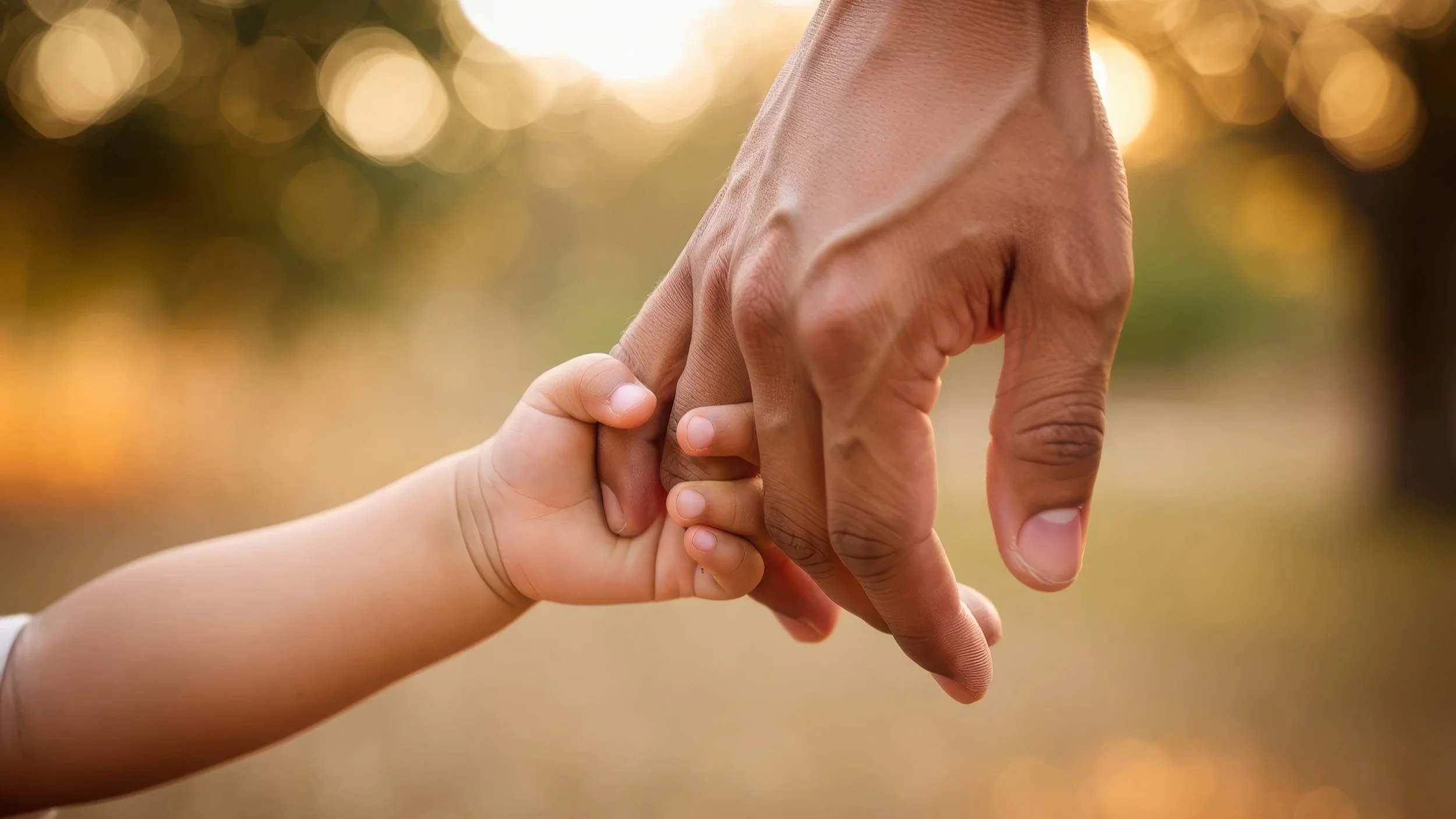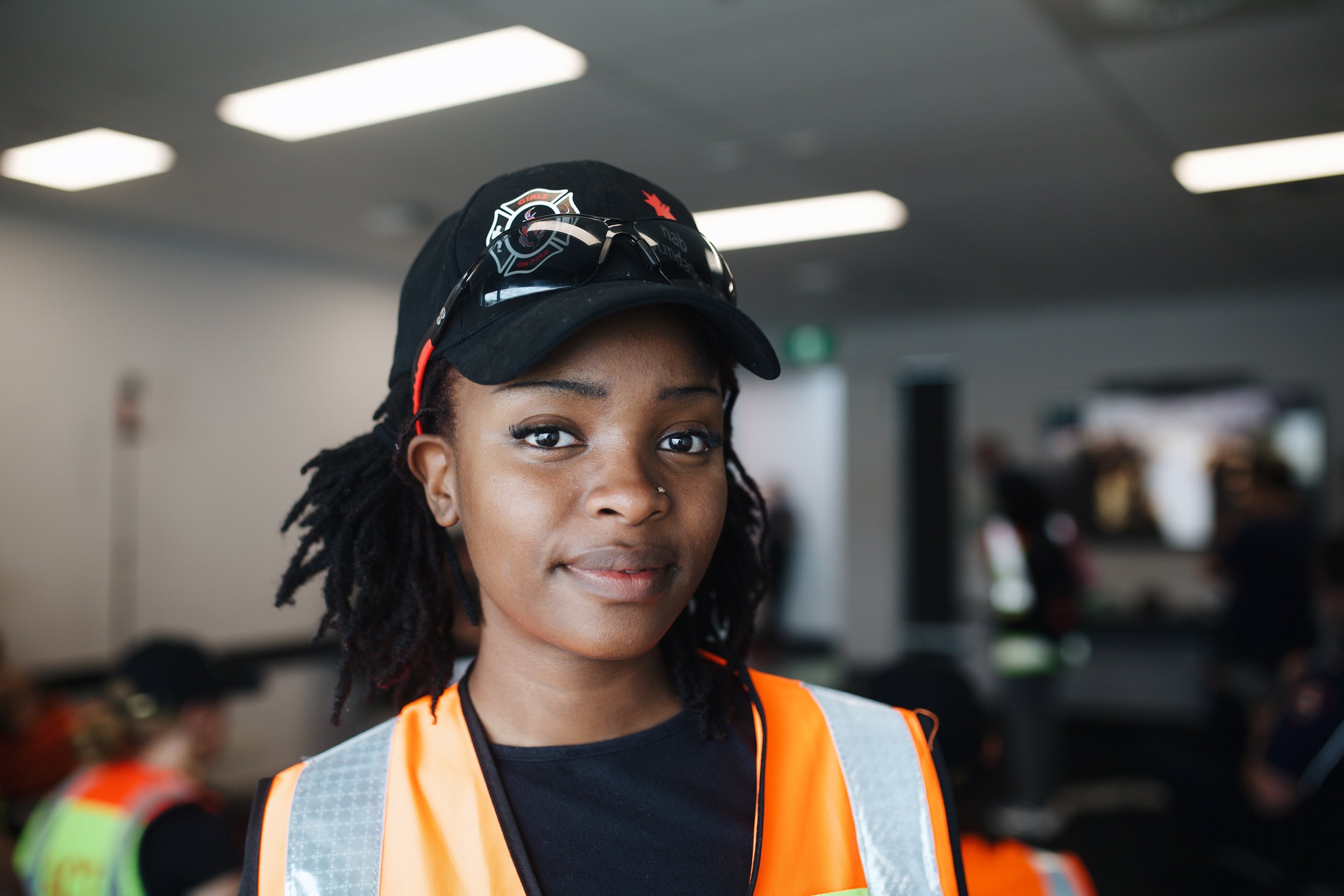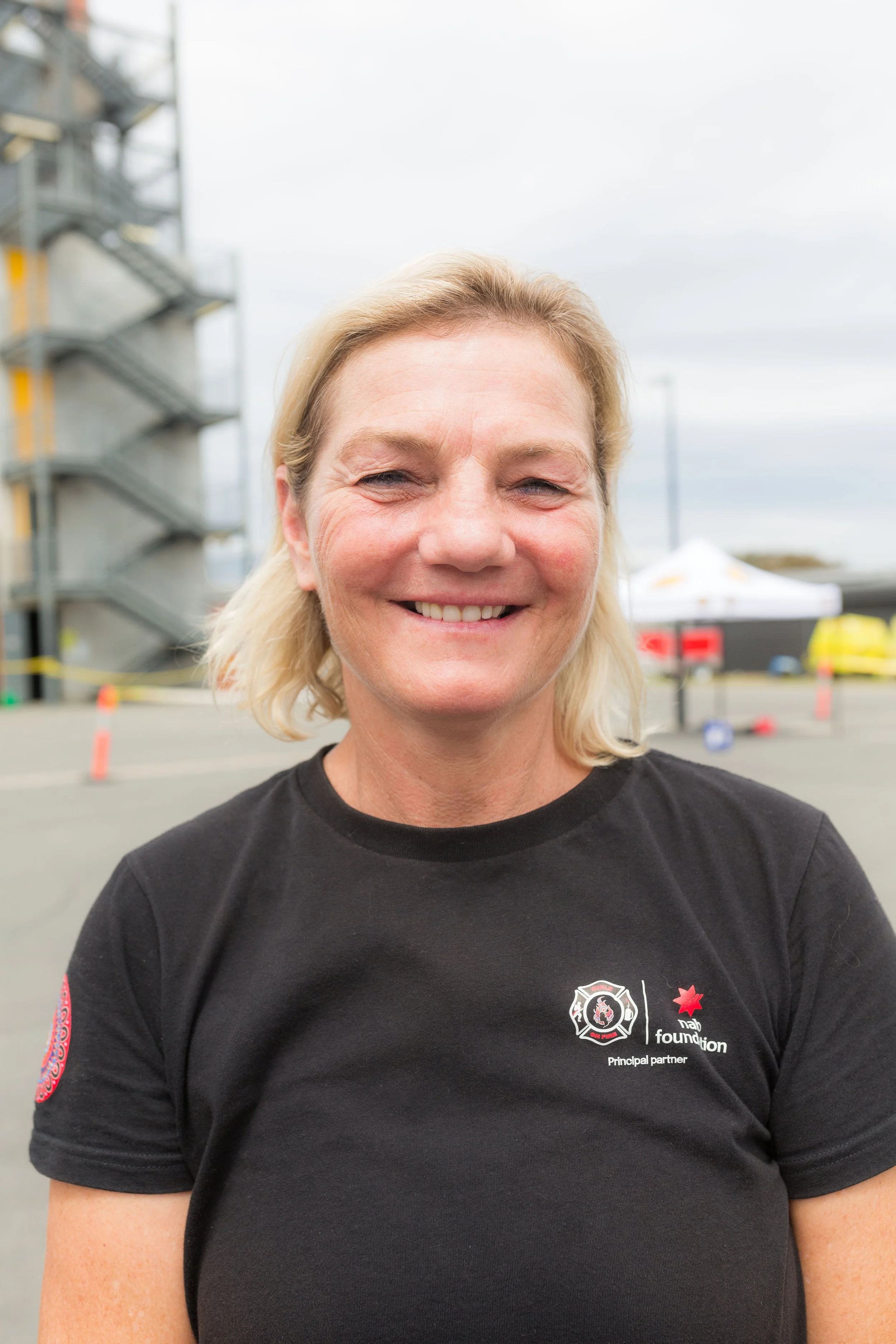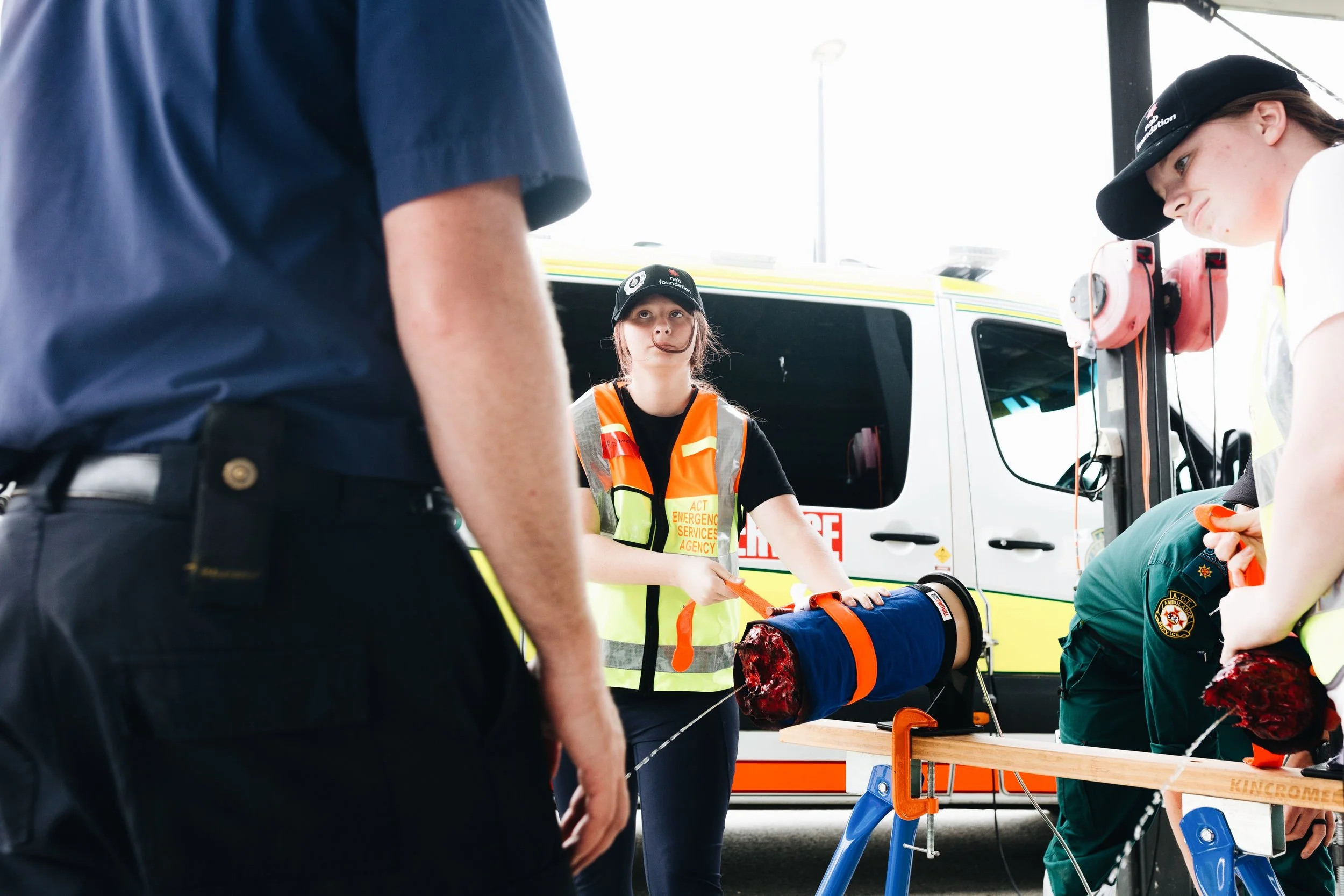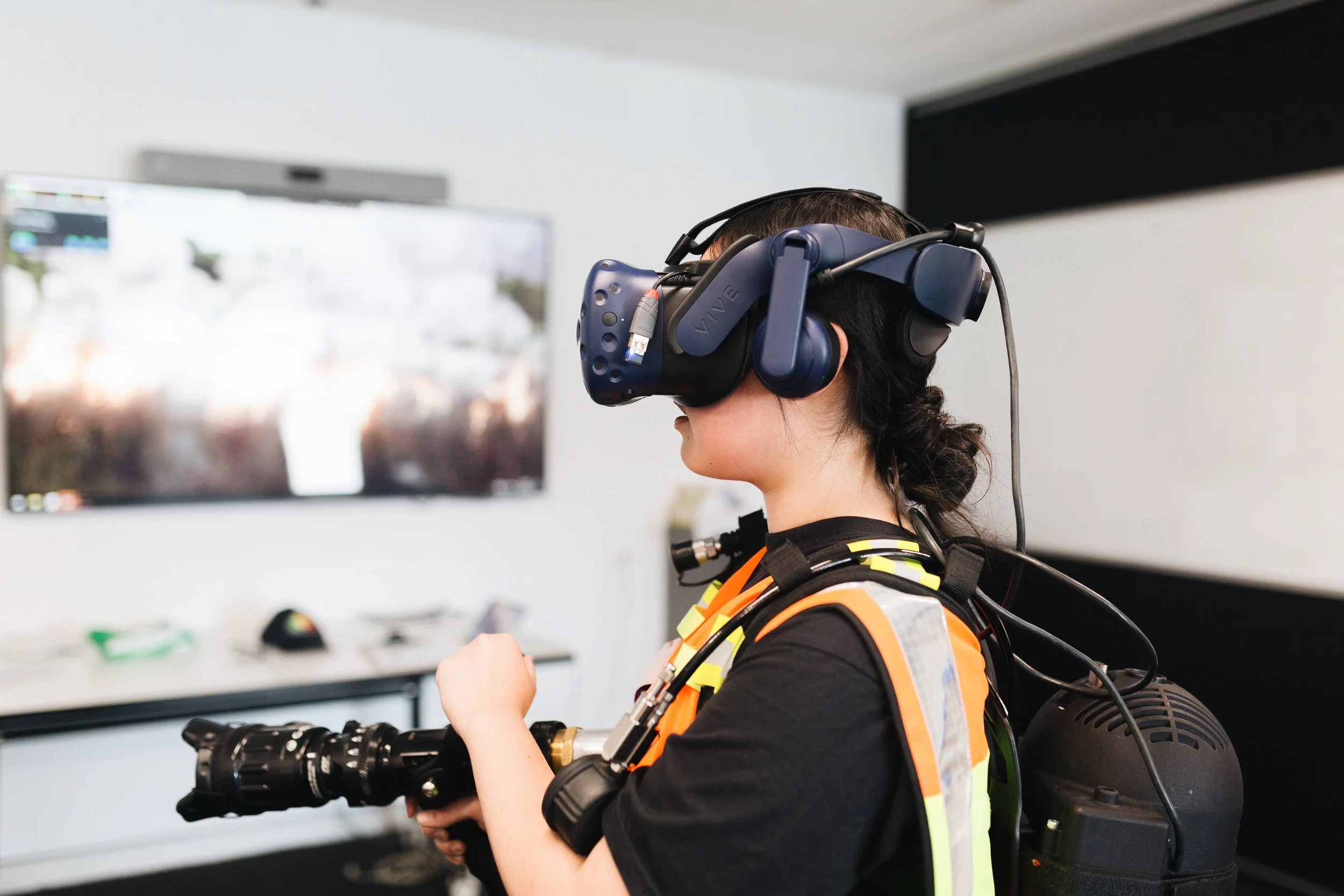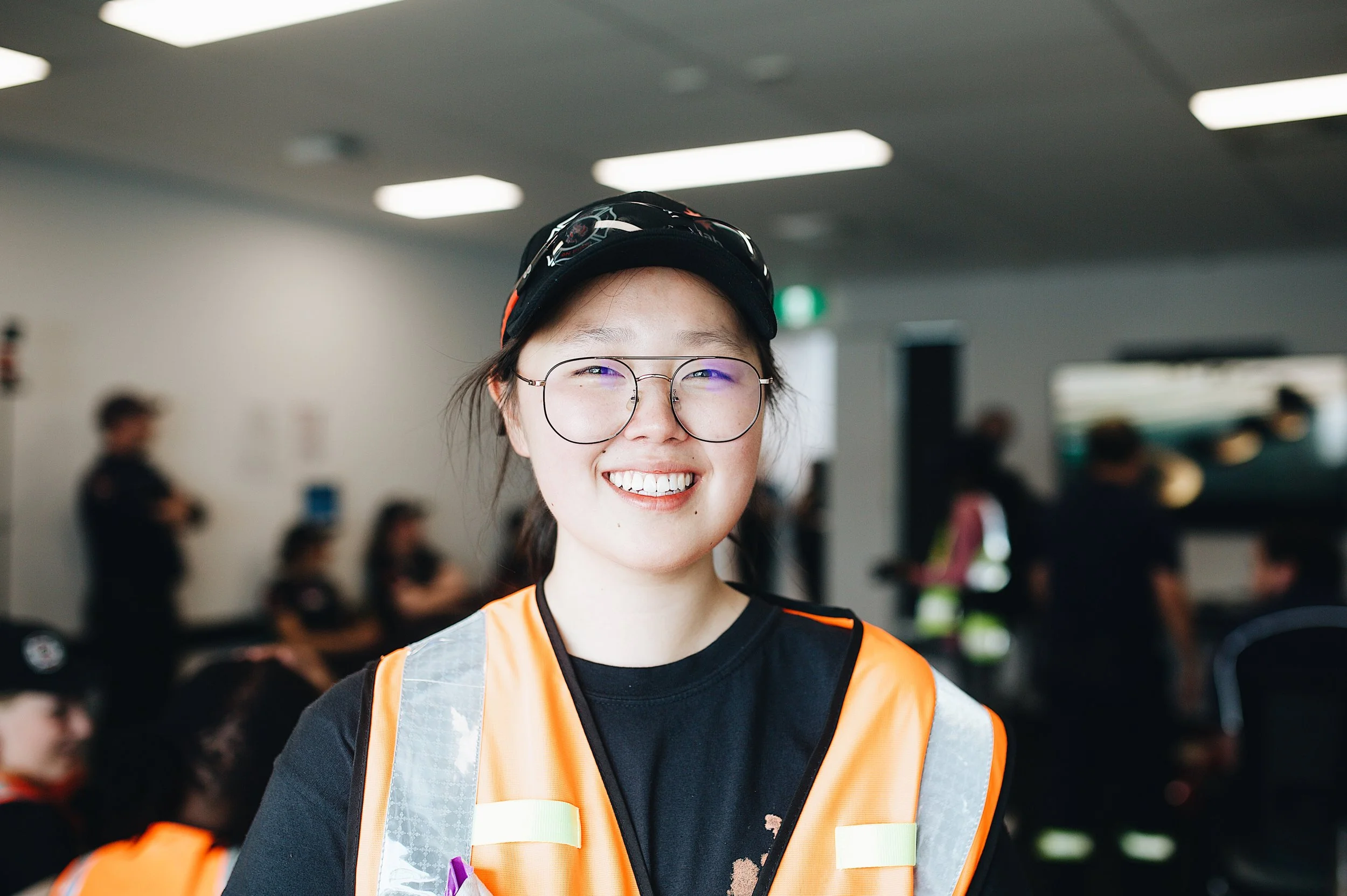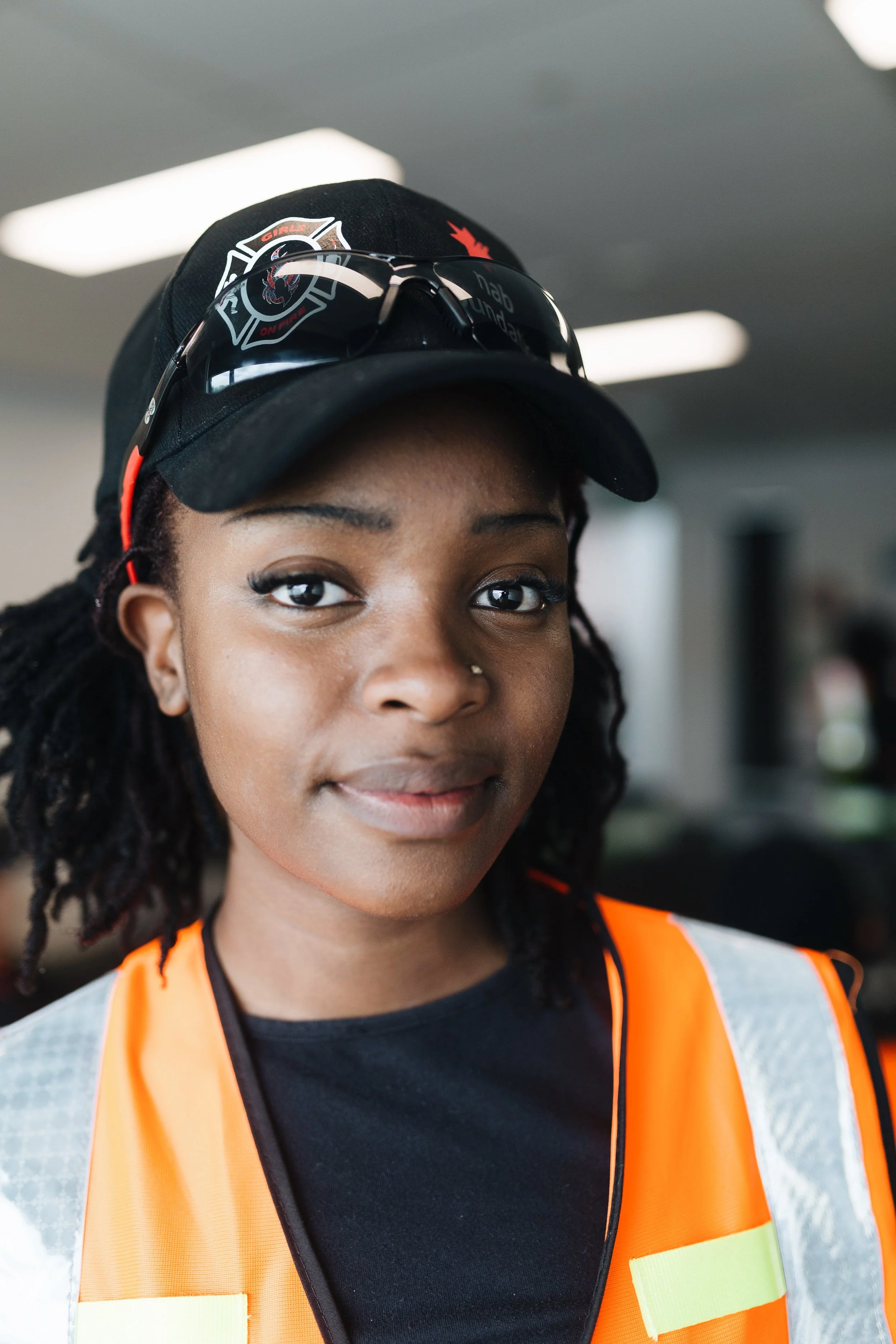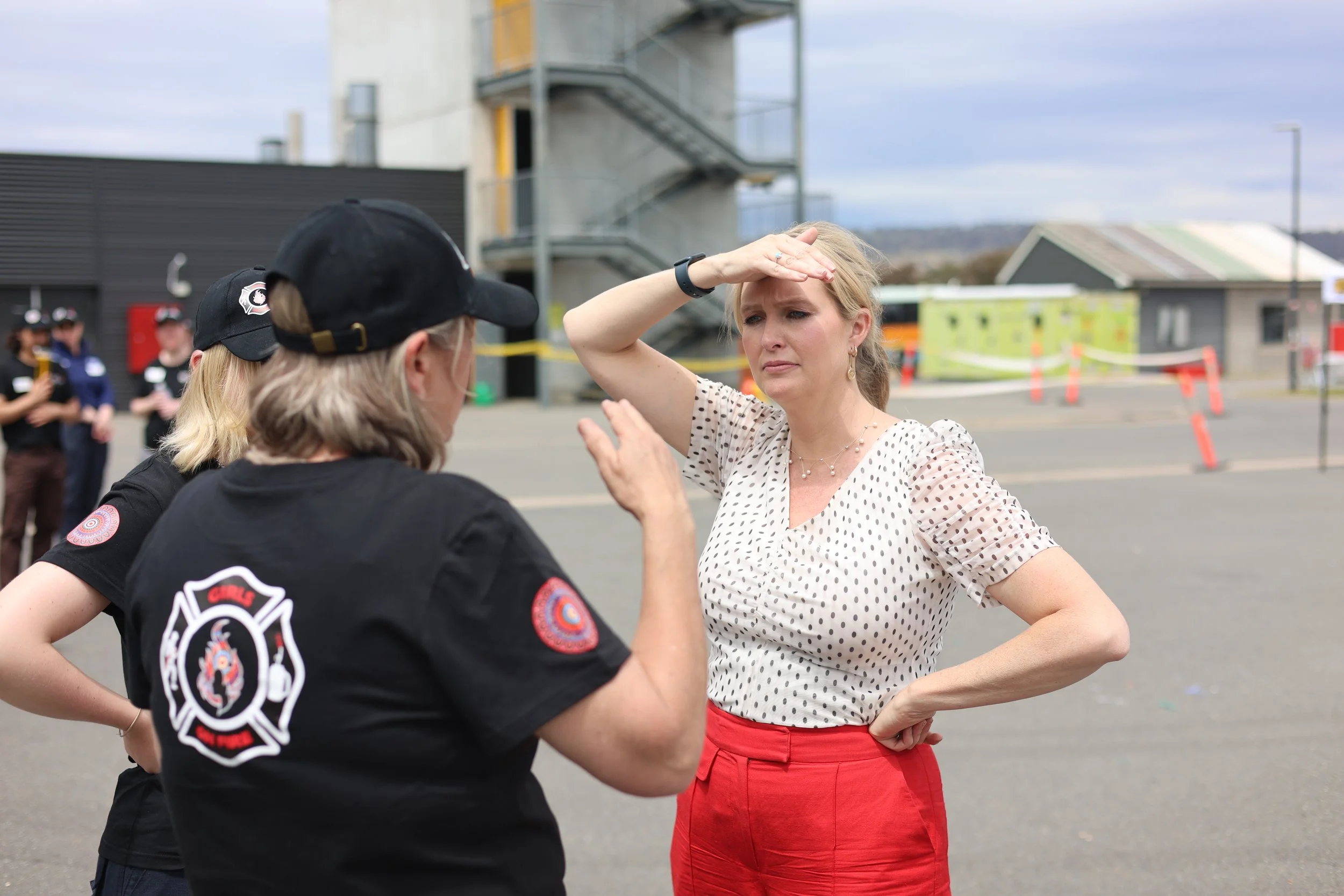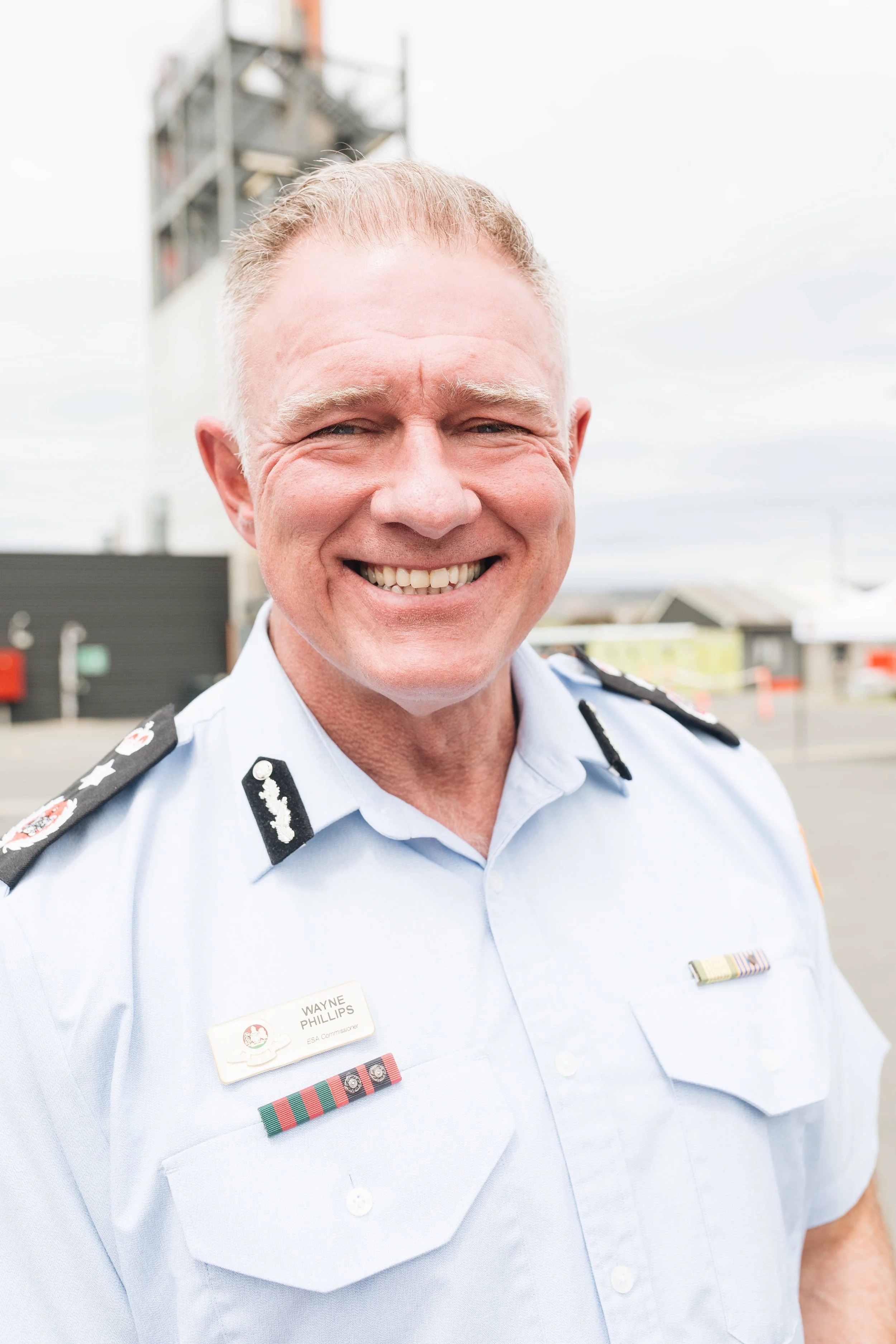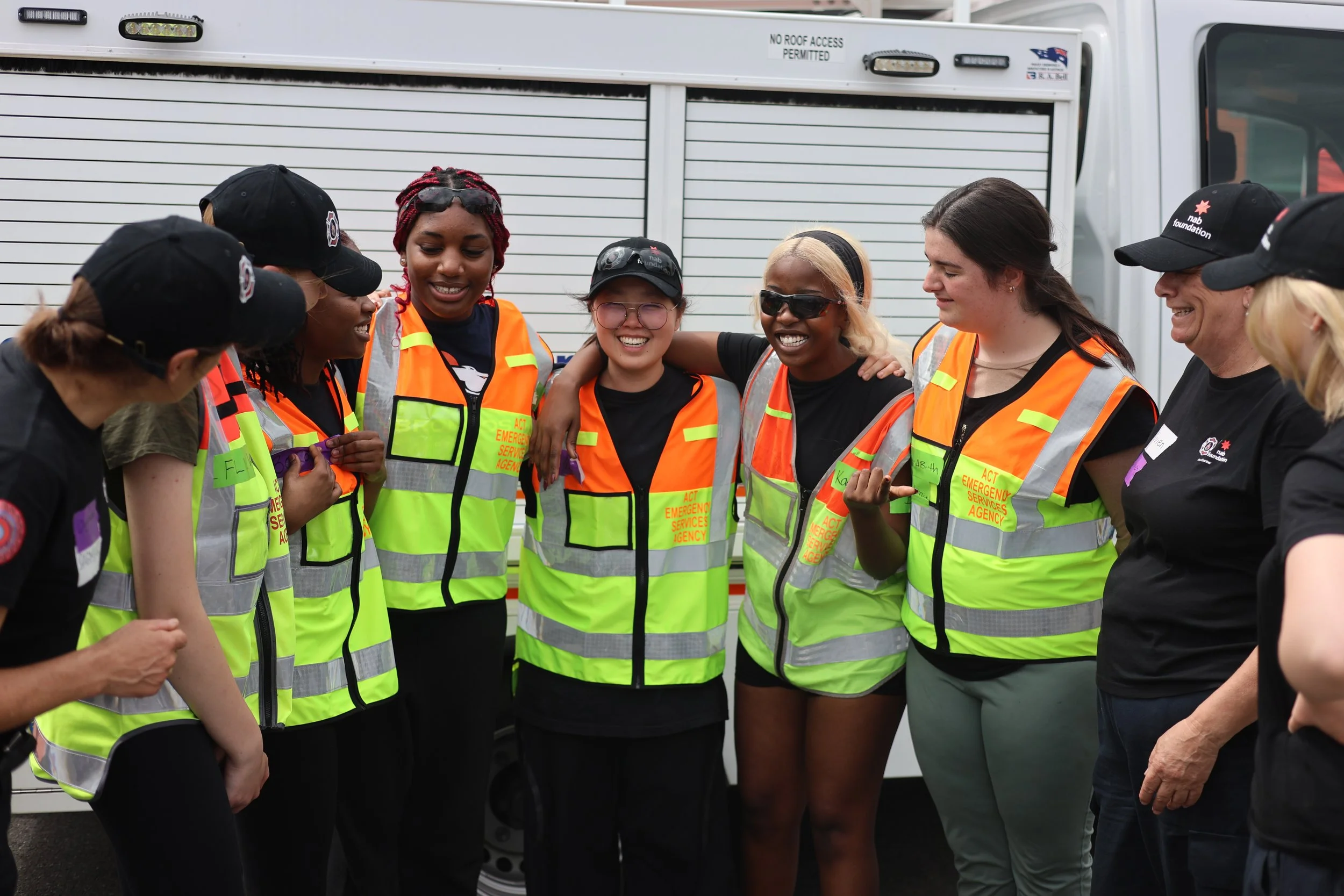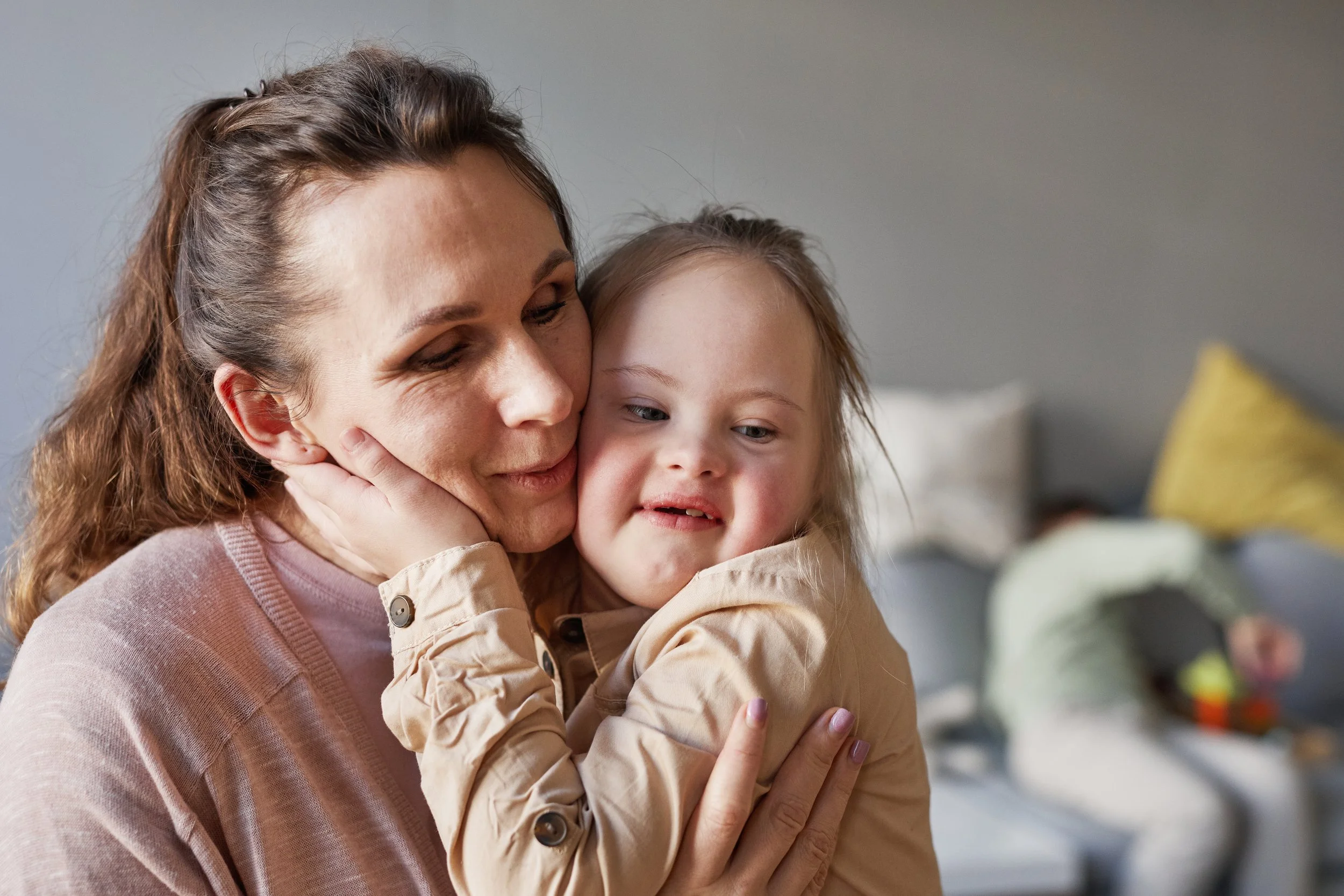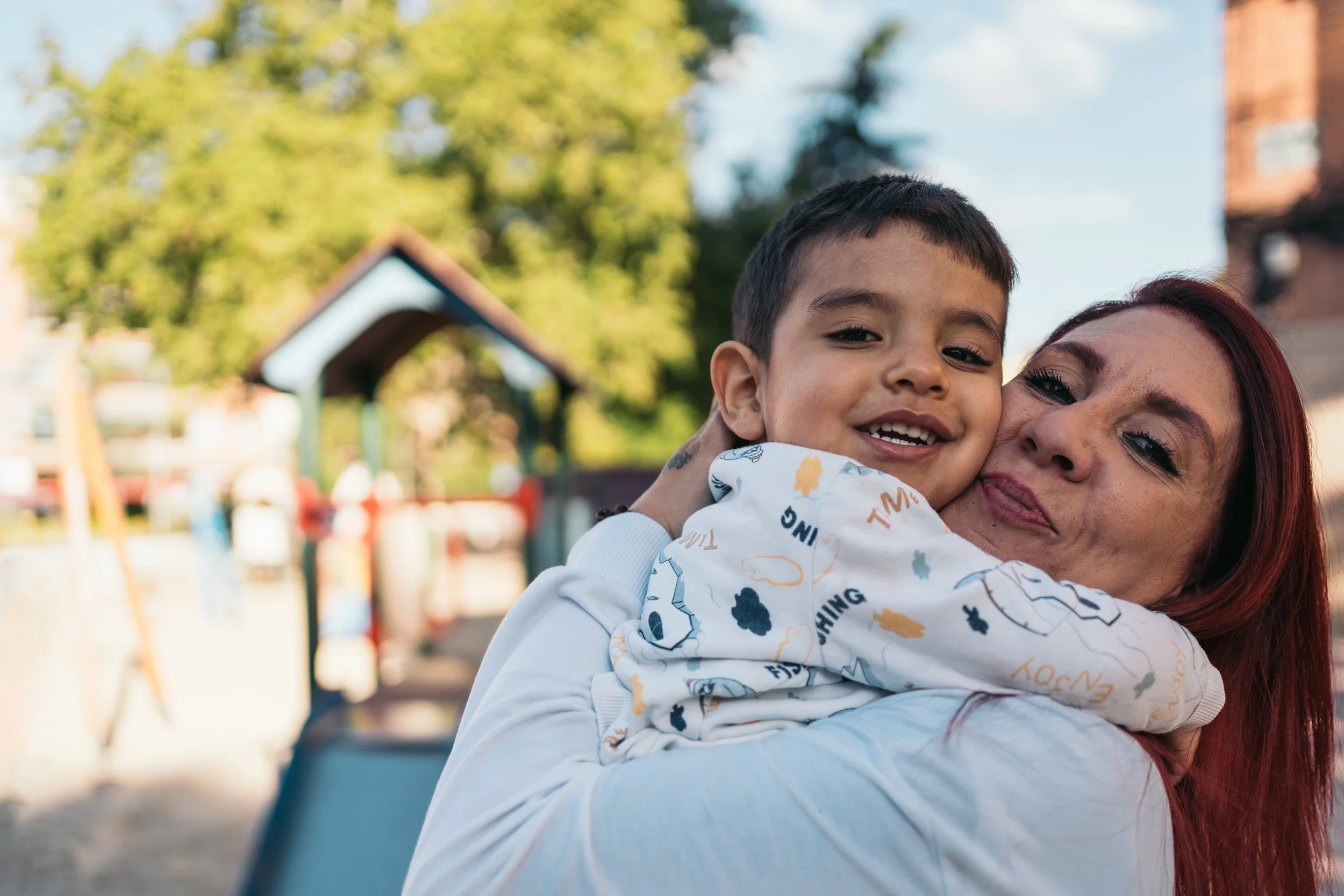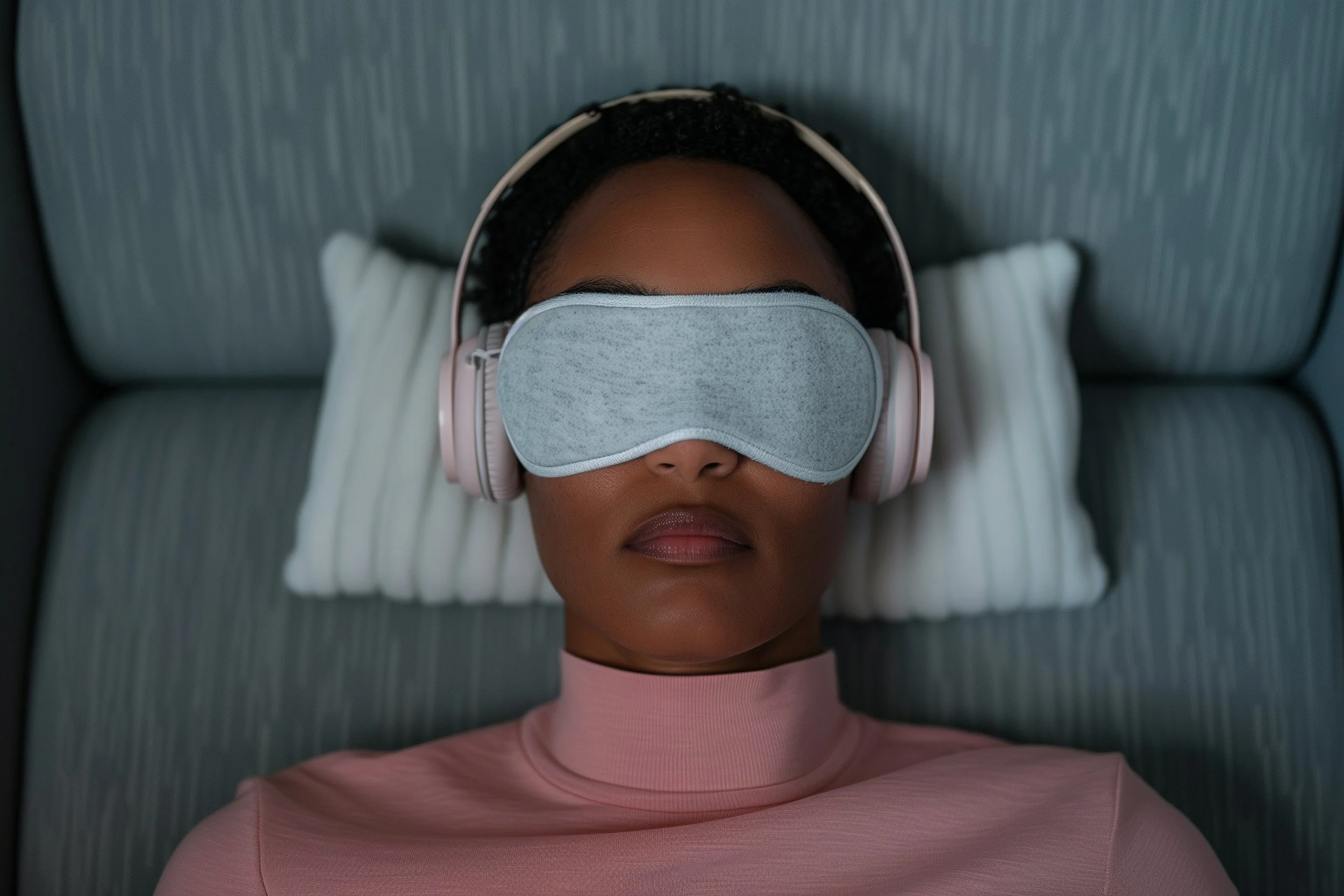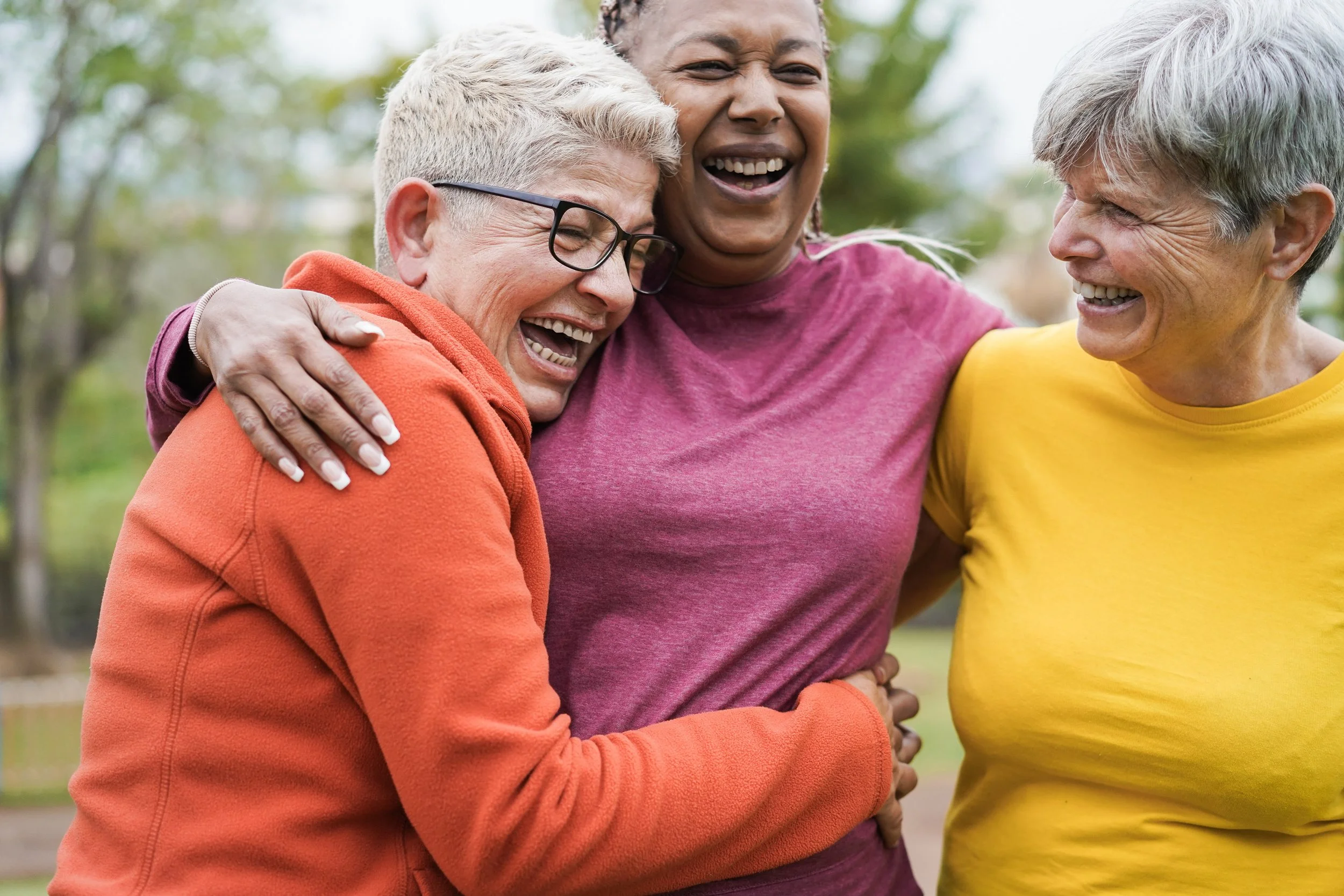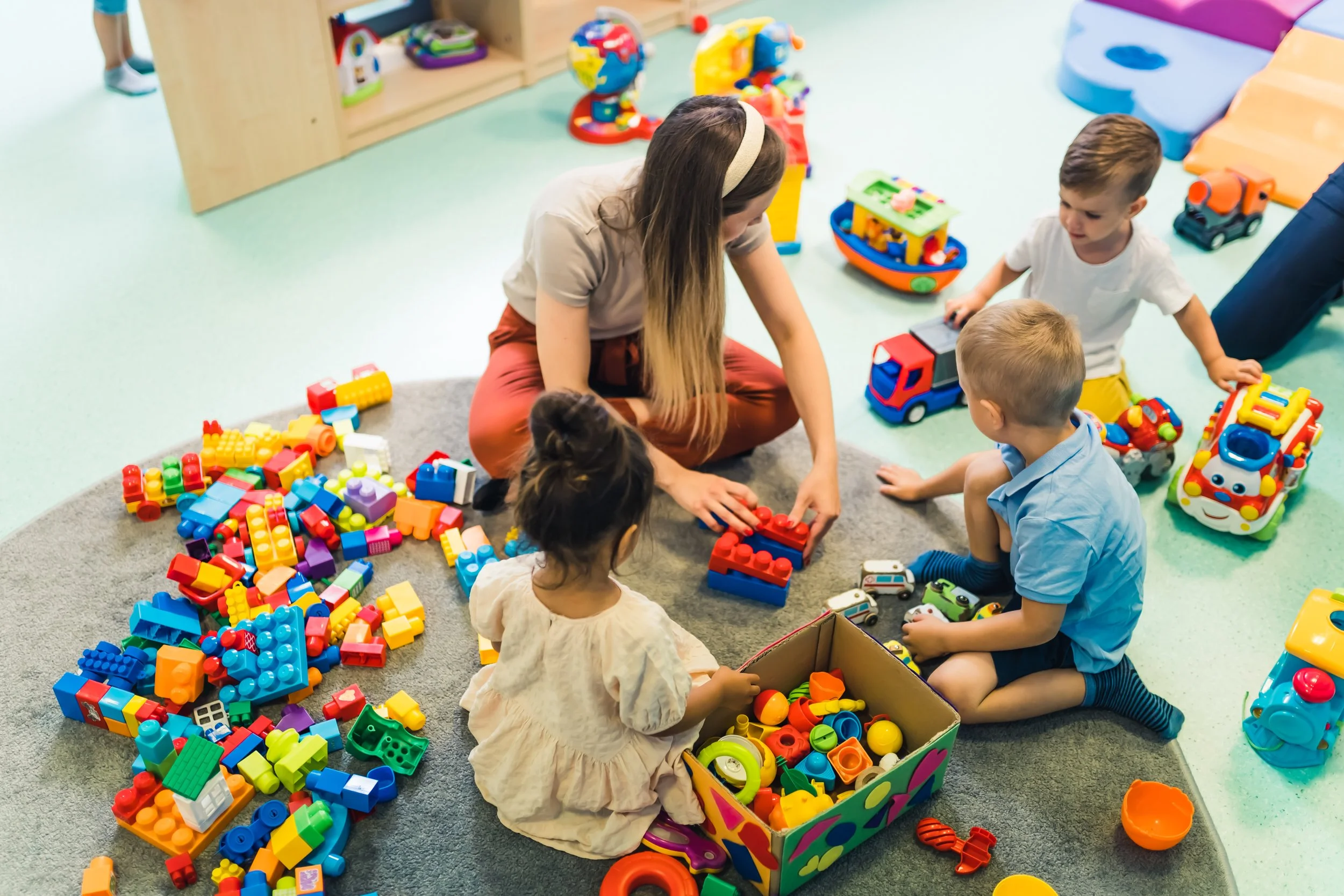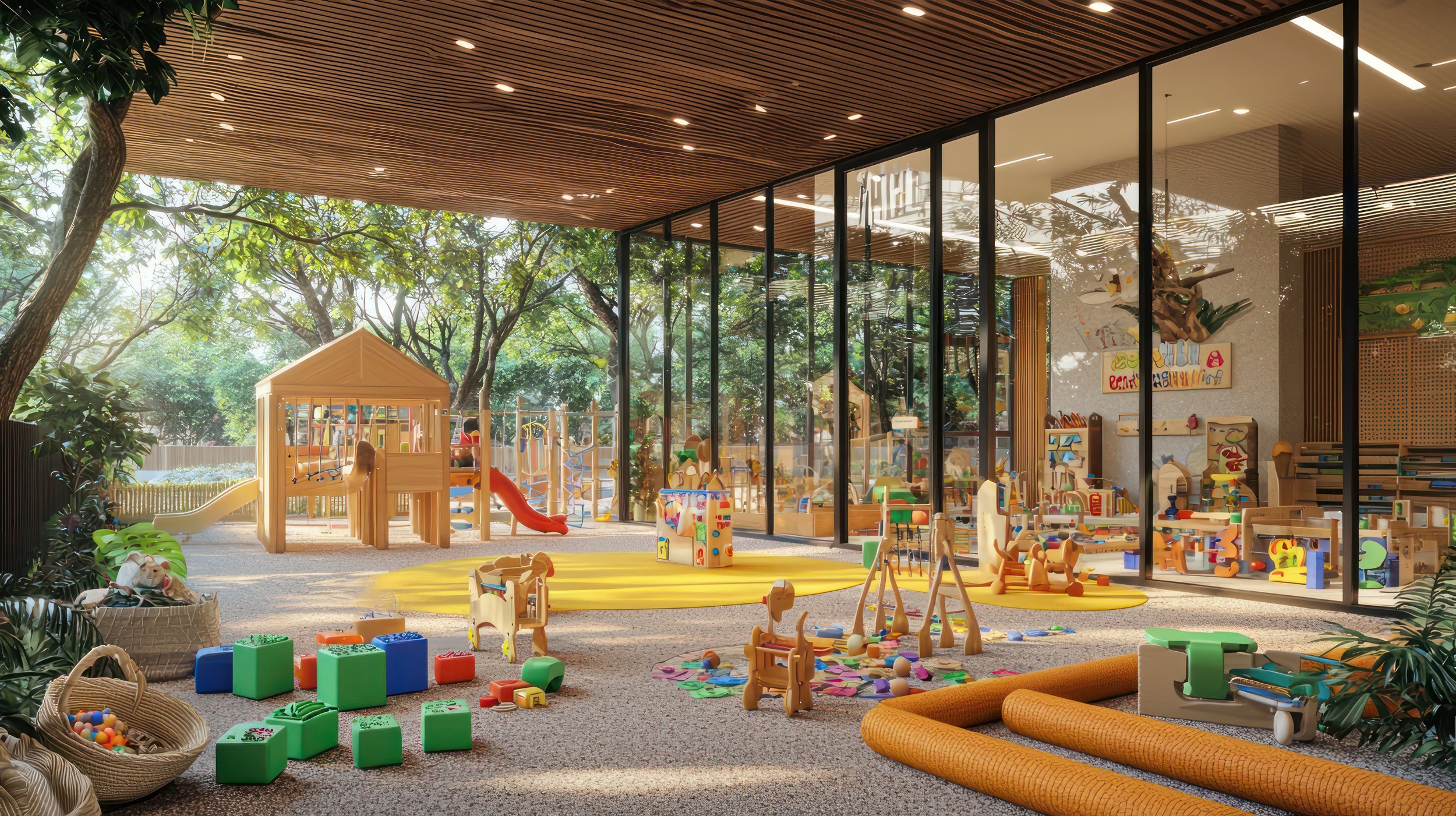Locked Out Abroad - Motherhood, Migration and a Medical System That Won’t Let Them In
As Australia recruits doctors through skilled migration to address workforce shortages, Australian-citizen international medical graduates are being blocked from returning to clinical practice. Many IMG mothers say the lack of supervised re-entry pathways is forcing them out of medicine entirely.
As Australia faces a healthcare workforce crisis, Australian-citizen international medical graduates, many of them mothers - remain shut out of clinical practice, not because of a lack of skill, but because no clear pathway back exists
Photo: Adobe stock.
We met in a local café and talked about politics, family, medicine and migration. It was only when the conversation turned to Udaya having to leave her young children behind again to jump through another bureaucratic hoop that her eyes filled with tears. Udaya is the founder of IMG Collective, a grassroots organisation representing Australian-citizen International Medical Graduates and advocating for practical, supervised pathways back into clinical medicine.
“I will have to leave my children soon to train in a regional hospital for three months, with no certainty it will help me secure employment where we live,” Udaya said.
Her experience is shared by dozens of Australian citizen International Medical Graduates who describe being locked out of clinical medicine, not because of a lack of skill or commitment, but because no clear pathway exists to return safely to practice.
Australia is facing a well-documented healthcare workforce shortage. Hospitals are stretched, regional and outer-metropolitan communities remain under served, and governments continue to invest heavily in recruiting doctors from overseas. Yet quietly, a group of doctors already living here - Australian citizens who are internationally trained, qualified and motivated - report a sense of being unseen, as existing systems do not clearly recognise or accommodate their re-entry into clinical practice.
Many of them are mothers.
The unseen struggle
Recently, through IMG Collective, several Australian-citizen International Medical Graduates (IMG) came together for a workshop to share their experiences of attempting to return to clinical practice. Their backgrounds varied, but their stories echoed one another: resilience, frustration, and a system seemingly unwilling to accommodate their re-entry into medicine.
One doctor, the mother of a five month old and a three-year-old, described the impossible bind she faces. She wants to return to medicine now yet her clinical gap has grown due to caregiving responsibilities. She explained that she cannot place her children in daycare, not because she undervalues childcare, but because recent incidents have made her fearful of leaving them in care she does not trust.
“I keep being told I need recent Australian experience,” she said. “But where do I get that experience if no one will hire me? How do I get referees when I’ve never been allowed to work here? I’ve approached clinics to observe and learn, even unpaid and I was turned away.” Her experience is consistent with accounts shared by other Australian-citizen International Medical Graduates.
The inconsistency of the system
This exclusion is often justified in the name of patient safety. Yet the inconsistencies are stark. Newly graduated Australian medical students enter the workforce under limited registration with Level 1 supervision, despite having no independent clinical experience. Doctors who change careers later in life even in their 40s or 50s are celebrated and supported through structured, supervised pathways.
So the question arises: if supervision is considered safe for new graduates and career changers, why is it not considered safe for citizen IMGs who have already completed medical degrees, passed high-standard Australian exams, and often worked clinically overseas?
This is not about lowering standards. It is about applying them consistently.
Paid programs, unpaid outcomes
Some IMG mothers are directed toward clinical readiness or re-entry programs. These programs often:
Cost $20,000 or more, are unpaid, do not guarantee employment and are inaccessible to many due to rigid “recency of practice” rules. For families already balancing childcare, rent and cost-of-living pressures, participation can be financially devastating, particularly when there is no clear pathway into work.
As one mother explained: “We are not asking for consultant jobs. We are asking for entry-level roles, supervised roles, a way in.”
Advice that demoralises
Several mothers reported being advised to abandon clinical medicine altogether and redirect their careers into non-clinical roles such as research, administration or policy.
One mother shared: “You talk about feminism, but in my experience, it is women giving this advice. I was told by a mother in a leadership position to explore non-clinical roles because of my gap. That conversation destroyed my confidence. Moving into non-clinical roles should be my choice, not something decided for me by someone else. I won’t return to myself until I get an opportunity. Now I’m stuck, should I do further exams or not?”
These are not disengaged doctors. They are highly motivated professionals whose confidence, identity and livelihoods are being eroded by systemic inertia.
Recruiting migrants but wasting their skills
Australia prides itself on being a global leader in skilled migration. Through points-based visas and workforce-targeted recruitment, the message to migrants is clear: your skills are needed here.
But for many, that promise collapses on arrival.
Highly qualified professionals are recruited, welcomed and then often left to navigate fragmented accreditation systems alone. Overseas qualifications are devalued, experience is discounted, and the burden of integration is placed squarely on individuals.
International Medical Graduates sit at the sharpest edge of this contradiction.
Despite being actively recruited to address workforce shortages, many IMGs including Australian citizens find there is no clear, affordable or time bound pathway into clinical practice.
According to Udaya, she is aware of close to 100 families nationally who are being negatively impacted by the absence of such a pathway. In some cases, doctors have left medicine altogether despite being deeply committed to the profession, with consequences for their mental health.
“This isn’t just affecting individual doctors it’s affecting families,” Udaya said.
The true cost of migration for IMG doctors
For International Medical Graduates, the financial cost of migrating to Australia and becoming a citizen is substantial long before employment barriers are factored in. From the point of migration, IMG doctors typically spend $20,000 to $40,000 or more in direct costs, including medical skills assessments, English language testing, Australian Medical Council examinations, visa applications, medical and police checks, and migration or legal fees.
This figure does not account for the far greater opportunity cost of lost income, which can amount to hundreds of thousands of dollars for doctors unable to practise while navigating registration and workforce barriers. For many, Australian citizenship is not simply a status it represents years of financial investment, professional sacrifice and family disruption, made in good faith on the expectation that their skills would be used.
Comparable countries facing similar workforce shortages have taken a markedly different approach.
In Canada, internationally trained doctors typically enter paid, supervised practice-ready assessment programs, often in underserved or regional communities. While licensing costs still apply, doctors are able to earn an income while meeting requirements, significantly reducing both financial strain and skills attrition.
Australia, by contrast, places the financial and professional burden almost entirely on individual doctors requiring compliance with standards before access to supervised work, without guaranteeing that such work is available. The result is a system that extracts skills, commitment and money from migrant doctors, while failing to integrate them into the workforce it urgently needs.
Deferred responsibility, delayed action
These concerns have been raised by IMG Collective repeatedly with health leaders, regulators, politicians and ministers. Each time, responsibility is deflected: hospitals cite regulations, regulators point to employers, and policymakers refer to AHPRA or the Medical Board.
Yet AHPRA and Medical Board itself has acknowledged that this is a collective problem requiring coordinated action.
Even if the number of affected doctors were small, the principle remains the same. Three doctors sidelined unnecessarily is still too many.
Government responses
A spokesperson for the Department of Health, Disability and Ageing said all health ministers have prioritised implementing reforms following the Independent Review of Australia’s regulatory settings relating to overseas health practitioners. The spokesperson said this includes work to introduce streamlined registration pathways for highly qualified medical practitioners to practise in Australia while maintaining patient safety.
The Department also confirmed that a review of the supervised practice framework for International Medical Graduates and supervisors is currently underway.
The Department said doctors must meet registration and recency-of-practice requirements set by the Medical Board of Australia, and that supervision arrangements are made through employers and state and territory governments.
A spokesperson for the Department of Home Affairs said the Australian Government is committed to supporting the healthcare sector to fill skills shortages where no suitably qualified Australians are available. However, the response did not address how Australian-citizen International Medical Graduates are expected to access supervised entry-level roles in practice.
Stakeholders argue that closer coordination between health, migration and workforce agencies could improve outcomes for both public health delivery and skilled migration by more effectively aligning visa, registration and employment pathways.
Further clarification was sought but not provided before publication.
The office of the ACT Minister for Health requested an extension; however, due to editorial deadlines, an extension was not possible.
A solution
At a time when governments are grappling with long standing productivity challenges across the public sector and the broader economy, better utilisation of skilled migrants represents a clear opportunity. Many migrants from Asia arrive through highly competitive skilled pathways, bringing strong professional experience, high labour force participation and a demonstrated commitment to work. Ensuring these skills are recognised and effectively integrated would support productivity, service delivery and workforce sustainability.
Structured, supervised pathways that safely integrate citizen IMGs already exist in concept. Proposals put forward by IMG Collective such as the Australian Integration Pathway, offer a practical, evidence based model.
What is missing is not competence or commitment. It is will.
“I’m tired of empathy without action,” Udaya said. “Empathy alone won’t lead to change, so we will have to keep fighting. My children see me fighting, and I need to show them that we do belong here in Australia and that building a life here has been worth the sacrifice.”
For these doctors, the cost is professional, emotional and financial. For Australia, the cost is lost talent and avoidable workforce shortages.
If you would like to share a similar experience or you would like to be connected to the IMG Collective please email elise@ladynews.com.au.
A Christmas Day Document Dump? The ACT Government’s Secrecy Problem Has Peaked
While NSW has released hundreds of thousands of pages detailing failures in the childcare system, the ACT has released nothing, not a single reassurance for parents. With critical documents now scheduled for release on Christmas Day, questions about transparency, accountability and child safety are impossible to ignore.
Adobe Stock.
When Four Corners revealed that nearly 150 paedophiles had exploited weaknesses in Australia’s early childhood sector, governments across the country and parents were forced into an everlasting moment of disgust. In New South Wales, the response was swift: more than 200,000 pages of regulatory documents have been released that were distressing, but essential for accountability.
In the ACT, not a single document has yet been released. Not a page. Not a summary. Not one reassurance for parents seeking clarity and safety. Instead, the ACT Government has set the release of these critical childcare files for a date so implausible it borders on parody, Christmas Day.
Releasing documents relating to child abuse and regulatory failure on a day when public scrutiny is at its lowest is, at best, deeply inappropriate. And it does not appear to be an isolated administrative lapse. It fits within a broader, well-established pattern of avoidance, delay and institutional self-protection.
Across issues that disproportionately affect women and children, the ACT Government has, in recent years stalled or resisted document releases, narrowed or diluted transparency orders, invoked privilege to block public access, minimised scrutiny, even during national crises.
This does not resemble cautious bureaucracy. It resembles a culture that requires serious examination.
How we arrived here
In June 2025, the Legislative Assembly passed a motion requiring the release of five years’ worth of serious incident documents from the early childhood sector. The motion, introduced by Independent MLA Thomas Emerson, was supported by the Opposition and crossbench.
But when the September deadline arrived, the Government - backed by the Canberra Liberals - moved to delay the release and significantly narrow what would be made public, removing witness statements, police evidence and correspondence with complainants.
The result was a transparency order stripped of much of its most meaningful material, with a three month extension that followed. The new deadline landed conveniently or otherwise on December 25.
Mr Emerson told Lady News that the Government has not released a single document and is likely to shield most of the material behind privilege claims in the final weeks before Christmas. With the Assembly set to extend the dispute window into January, he expects meaningful public release to be delayed until February 2026 at the earliest. A spokesperson for Mr Emerson added that he did not believe the Christmas release date was deliberate, suggesting it may have been the result of “clumsiness” rather than intent.
Parents are particularly concerned that the scope of documents originally ordered for release has been scaled back, effectively restricting how much they can learn about incidents in early childhood centres. For many, this narrowing of information feels like yet another barrier placed between families and the truth.
The ACT now appears to be an outlier
While NSW continues releasing thousands of documents weekly, the ACT appears to be the only jurisdiction yet to release any equivalent material. Canberra parents are receiving none of the transparency afforded to families across the border. Public safety should not depend on geography. Lady News sought comment from Education and Early Childhood Minister Yvette Berry and Attorney General, Tara Cheyne.
Neither responded to the questions. Their silence speaks to the core issue, a government increasingly unwilling to confront the failures of its own system.
The ACT is also one of the few jurisdictions where court level data does not appear to be easily or publicly accessible, reinforcing concerns about a broader culture of restricted transparency spanning both justice and child safety regulation. When information about regulatory failures and even court outcomes remains difficult to obtain, the public is left to question what else may be shielded from view.
The Glanfield Inquiry previously identified a “systemic lack of transparency” in child protection. FOI processes have been marked by delays and excessive redactions. The ACT Integrity Commission has, in recent years, reported relatively low investigation outputs compared to other jurisdictions.
Individually, these issues may look procedural. Taken together, they resemble a pattern.
Trust collapses in a system built on secrecy. When a government works this hard to avoid scrutiny, the real question is no longer about process, it is about power. What is being protected, and at whose expense? If transparency is treated as optional, then children's safety is treated as expendable. And that should alarm everyone in our community.
Lighting the Way: How Girls on Fire is Igniting the Next Generation of First Responders
Thirty-three young women swapped classrooms for command posts, stepping into helmets, high-vis vests and virtual-reality fire grounds as part of Girls on Fire a program breaking gender barriers in emergency services while building confidence, capability and community resilience.
Girls of Fire participant, Matisha Bang. Photo: Elise Searson Prakaash
The smell of smoke and adrenaline lingered in the Canberra air, but this time, it wasn’t from a bushfire. Thirty-three young women from ten local high schools had traded classrooms for command posts, stepping into helmets and high-vis vests for a week of firefighting, rescue drills and teamwork as part of the Girls on Fire program.
Chief Executive Bronnie Mackintosh knows exactly why these programs matter. “Everyone now has been affected by some kind of natural disaster, be it floods, fires or the pandemic,” she said. “So we teach an all-hazards, all-emergencies preparedness model.”
Chief Executive of Girls on Fire, Bronnie Mackintosh. Photo: Elise Searson Prakaash
Born from Fire and Rescue NSW, Girls on Fire was created to address one of the emergency sector’s biggest challenges - the gender gap. For Mackintosh, visibility is everything. “Many of these young women have never seen a female firefighter before. Just that visibility coming into an arena surrounded by women leaders, firefighters and change makers - it’s transformative,” she said. “When you give women the power to move their bodies, to be praised for technical skills and strength, you enable them to thrive.”
The Program: From Campfire Sparks to a National Movement
The Girls on Fire program began with a single camp at YMCA Camp Yarramundi, where high-school students learned practical firefighting and rescue skills under the mentorship of women in emergency services. What started as a small pilot soon became a state-backed initiative. When COVID-19 hit, the team pivoted online with Virtually Possible, an innovative digital safety course. Within a few short years, Girls on Fire expanded across New South Wales and beyond - delivering fire and cultural inclusion camps in regional towns, launching LGBTQIA+ inclusive programs during Pride Month, and now trialling vocational pathways in Juvenile Justice and youth engagement. Backed by the NSW Investing in Women grant and national partners like the NAB Foundation, the program has transformed from a grassroots idea into a growing national movement - empowering girls to build confidence, capability and community resilience wherever they live.
Girls on Fire participants perform a staged life saving procedure. Photo: Elise Searson Prakaash.
Innovation on the Fireground
The program’s newest feature is a Virtual Reality hose simulation, giving participants the chance to experience the physical and mental demands of firefighting in a safe, controlled environment. Using VR headsets and motion-controlled hoses, participants navigate realistic fire scenarios like managing water pressure, reacting to fast-changing conditions, and learning teamwork under pressure.
Catherine Song using the VR hose simulator. Photo: Elise Searson Prakaash.
The technology was developed with input from frontline firefighters and safety educators to bridge the gap between classroom learning and field experience. It helps participants build confidence in their technical abilities before stepping into live drills, offering a modern, accessible approach to emergency training that reflects how firefighting and rescue operations are evolving.
The Experience: Breaking Stereotypes, Building Strength
For Catherine Song, a Year 11 student who joined the program after spotting it on her school’s careers board, Girls on Fire offered both relief and inspiration. “School is really stressful - exams, pressure, all of it,” she said. “This is such a good mix of physical activity, meeting new people and having fun.”
Catherine Song. Photo: Elise Searson Prakaash.
Catherine’s still deciding between medicine, the ADF and firefighting or maybe music - but she says the experience has shown her what she’s capable of. “It’s a good break from academics, but it’s also showing me that I can handle challenges,” she said.
Her classmate Matisha Bang felt the same surge of confidence. “I feel really powerful like I hold all the strength,” she said. “It’s something I never thought I’d do because of society’s standards and just being a girl. I’m really proud of myself for doing it.”
Matisha Bang. Photo: Elise Searson Prakaash.
Bang’s father, she added, was “really excited” to hear about her day on the fireground. “He told me to tell him everything about it when I got home,” she said, smiling.
The Impact: From Sparks to Systems Change
At the ACT Emergency Services Agency training grounds, Minister for Women Marisa Paterson praised the Girls on Fire program for its empowering impact on participants. She said the 33 young women involved had gained confidence, skills and inspiration from the female firefighters mentoring them, calling it a powerful example of how hands-on engagement with emergency services can open new pathways for women to serve and lead.
Minister for Women, Marisa Patterson. Photo: Supplied and photographed by Hannah Head.
For ESA Commissioner Wayne Phillips, the ripple effect goes well beyond recruitment. “Traditionally we don’t see many women represented in urban fire services,” he said. “What we wanted to do here is show young women that they can be part of any of these agencies; and that they already have the resilience and problem-solving skills to step up when their communities need them.”
He believes Girls on Fire not only inspires future firefighters, but strengthens communities. “It’s about empowering them,” Phillips said. “Even if they never join a service, they become that reliable first responder when we’re not there.”
ESA Commissioner Wayne Phillips. Photo: Elise Searson Prakaash
Across Australia, the program has now run in rural and remote communities from Broken Hill to Bourke and Canberra, giving hundreds of young women the chance to train alongside real emergency crews. “There’s no reason it can’t catch on everywhere,” said Mackintosh. “We’ve proven the concept and if we can take this program anywhere, we can make our communities safer, build capacity for our emergency services, and raise a generation of more resilient young people.”
In a sector where less than one in ten frontline firefighters are women, Girls on Fire is doing more than filling uniforms; it’s reshaping what leadership, service and courage look like.
Girls on Fire participants. Photo: Supplied and photographed by Hannah Head.
A Flame That Keeps Burning
The legacy of Girls on Fire isn’t just in the skills learned, but in the confidence sparked. Each young woman who leaves the program carries a new sense of agency and proof that strength and service have no gender. These are the leaders who will shape safer, more resilient communities, wherever their paths take them.
Mothers Set to Bear the Brunt of NDIS Changes
The federal government says its shake-up of the National Disability Insurance Scheme (NDIS) is about keeping the budget under control. But for families, carers and advocates, the reality feels different. Instead of relief, many are worried these changes will hollow out the support system parents have come to rely on — leaving mothers, in particular, to carry even more of the load at home.
What’s Changing
From 2027, children under 15 with mild to moderate developmental delays or autism will no longer be covered by the NDIS. Instead, they’ll be moved into a new $2 billion “Thriving Kids” program, co-funded by the states and territories.
Health Minister Mark Butler says this is about bringing growth in NDIS costs down from 8% a year to a “sustainable” 5–6%. But what this new program will actually look like is still unclear — and for many parents, especially in regional areas where therapy options are already scarce, the announcement has sparked anxiety rather than reassurance.
“We live in a small town. The NDIS has been the only way my son gets regular speech therapy. Without that funding, I honestly don’t know how we’ll manage — the closest private clinic is two hours away, and we can’t afford $180 a session.” – Mother of a 7-year-old boy with autism.
“Families don’t stop needing support when the NDIS pulls back — they just pay the price in exhaustion, stress and lost futures.”
The Whole Point of the NDIS
When the NDIS was created, the idea was simple: invest early, so children and families could build capacity and independence. That upfront support was meant to reduce the need for crisis care and lost opportunities down the track.
Early therapies aren’t a luxury — they can mean the difference between a child keeping up at school or slipping behind, between building independence or relying on higher levels of care later in life.
“My daughter has come so far with her occupational therapy — she can dress herself now, something we never thought possible two years ago. If that stops, I’m scared she’ll lose those gains. It feels like all our hard work could unravel.” – Parent of a 9-year-old girl with developmental delay.
“True equality won’t come from pushing more unpaid care onto families. It will come when women — especially mothers and carers — are at the heart of policy making, shaping systems that reflect the realities of care, rather than being forced to silently shoulder the cost of gaps in support.”
Who Really Pays?
On paper, the government might save money. But the unpaid work doesn’t disappear. It shifts — usually to women.
In Australia, women already do around 32 hours a week of unpaid care and household work, compared with 23 hours for men. For single mothers and those raising children with disability, that number can climb to 40 hours or more.
When therapies are cut, it’s most often mothers who reduce their paid hours or leave work altogether to step in. That means lost wages, lost super, and lost career momentum — sacrifices that ripple through families and futures.
“I had to quit my job when the waitlists got too long and we couldn’t get enough therapy through the NDIS. It wasn’t a choice. My son needs me, but I can’t help wondering what this means for our financial future.” – Single mother of two children with additional needs.
When the Safety Net Moves
Families who’ve built their routines around NDIS supports know how fragile stability can be. A child thriving in a mainstream classroom thanks to therapy could quickly fall behind if that support disappears. Parents may end up travelling hours to appointments or simply missing out if they can’t pay.
Advocates warn this isn’t an “edge case” — it’s exactly what happens when the safety net is pulled back.
“My eldest is autistic and copes by masking, but it takes everything out of her. She looks like she’s managing, so I worry she’ll be seen as not needing support. What people don’t see is the meltdowns when we get home. Foundational supports won’t cut it.” – Mother of an 11-year-old autistic girl.
“When therapies are cut, it’s mothers who step back from work, lose income, and carry the cost no one counts.”
What Other Countries Show Us
Other nations show that doing more, not less, pays off. In Sweden, disability supports are integrated into schools and health systems, so children don’t lose out because of funding changes. In the US, programs like the Early Start Denver Model prove that investing before age five can significantly reduce the need for costlier interventions later.
These systems succeed because they focus on prevention and continuity, not short-term savings. They support children and families early and consistently — instead of leaving parents to patch the gaps.
👉 For mothers already stretched thin, these changes raise a gut-level fear: if the NDIS steps back, who will step in? What was meant to be a shared national responsibility risks becoming another invisible job added to women’s already full plates.
True equality won’t come from pushing more unpaid care onto families. It will come when women — especially mothers and carers — are at the heart of policy making, shaping systems that reflect the realities of care, rather than being forced to silently shoulder the cost of gaps in support.
Trauma’s Toll on the Body—and the Economy: The $220 Billion Health Crisis Australia Can’t Ignore
Trauma isn’t just a psychological wound—it can leave lasting marks on nearly every organ system in the body. Studies increasingly show that trauma is linked to chronic health problems, including autoimmune disease, metabolic syndrome, and non-alcoholic fatty liver disease. The economic burden of trauma-related chronic illness on Australia is staggering, costing the nation an estimated $220 billion annually.
In Australia, where nearly one in three women has experienced physical or sexual violence, the consequences are both widespread and deeply physical. Yet emerging therapies—from somatic practices to innovative treatments like ketamine—are offering new hope for healing the body as well as the mind.
Trauma is a health issue — not just a mental one
Trauma disrupts the body’s internal safety mechanisms, leaving the brain stuck in a state of constant threat detection, even when no immediate danger exists. At the centre of this response is the hypothalamic-pituitary-adrenal (HPA) axis, the body’s hormonal command centre for stress. Prolonged trauma can dysregulate this system, causing persistently high levels of cortisol and a cascade of health issues including immune dysfunction, chronic inflammation, fatigue, and metabolic disturbances.
The landmark Adverse Childhood Experiences (ACE) Study revealed that individuals with high trauma exposure are significantly more likely to suffer from heart disease, diabetes, lung disease, depression, and early death.
Trauma’s influence extends deeply into metabolic health. Chronic stress and hormonal disruption contribute to metabolic syndrome—a cluster of conditions including insulin resistance, high blood pressure, elevated triglycerides, and abdominal obesity. A 2018 study in Obesity Reviews found that early-life trauma significantly increases the risk of metabolic syndrome in adulthood.
Researchers have also uncovered connections between trauma and non-alcoholic fatty liver disease (NAFLD). Persistent stress leads to fat accumulation in the liver, driven by high cortisol levels and disrupted insulin signalling. A 2019 Australian cohort study in Hepatology Communications reported that individuals with significant early-life stress or PTSD were more likely to develop fatty liver disease, independent of diet and alcohol intake. Over time, these changes increase the risk of type 2 diabetes, cardiovascular disease, and liver fibrosis.
A 2021 meta-analysis in The Lancet Psychiatry also found significantly higher rates of inflammatory diseases—including IBS and autoimmune conditions—among people living with PTSD. All of this points to trauma as a profound physiological burden affecting nearly every system in the body.
The cost of trauma‑related chronic disease to Australia
The ripple effect of trauma extends beyond individual health — it also inflicts a major economic toll. Mental illness and trauma-related conditions cost Australia approximately $220 billion annually, or roughly 10% of GDP. This includes healthcare expenditure, lost productivity, social services, and premature mortality.
Spending on specialised mental health services alone reached $10.8 billion in 2019–20, while Medicare-subsidised mental health services and medications cost the federal government over $2.2 billion in 2022–23. When mental illness coexists with chronic physical conditions—such as cardiovascular disease, diabetes, or fatty liver disease linked to trauma—the economic burden increases substantially. Co-occurring physical illness adds an estimated $57 billion per year in treatment, disability, and early mortality costs.
Work disruption is a major cost driver: mental health conditions account for approximately 41,000 lost work years annually due to absenteeism and reduced capacity in working Australians.
Rebuilding, one breath at a time
While talk therapy remains essential, somatic therapies that work through the body are increasingly recognised for helping trauma survivors regain a sense of safety. Practices such as trauma-informed yoga, EMDR (Eye Movement Desensitisation and Reprocessing), breathwork, grounding exercises, and vagus nerve stimulation can soothe the nervous system and interrupt chronic stress responses.
At the core of these methods is neuroplasticity — the brain’s ability to rewire based on new experiences — offering hope that trauma’s physical imprint is not permanent.
Simple rituals—mindful breathing, gentle movement, spending time in nature—help the body relearn safety.
A new frontier: ketamine therapy
For some, medical treatments like ketamine therapy offer promising relief when symptoms are severe or resistant to other interventions. Originally an anaesthetic, ketamine has shown rapid efficacy in treating depression, PTSD, and chronic pain by modulating the brain’s glutamate system and fostering neuroplasticity.
A 2021 review in The American Journal of Psychiatry found significant reductions in PTSD symptoms following ketamine treatment. While ketamine is not a cure and carries risks such as dissociation and elevated blood pressure, it creates a therapeutic window for recovery when combined with psychotherapy.
In Australia, ketamine therapy is tightly regulated, costly, and reserved for treatment-resistant cases—but offers hope to some survivors for whom traditional treatments have failed.
The power of connection
Safe, supportive relationships remain among the most potent healing tools. Research shows that social connection buffers trauma’s physiological effects, lowering inflammation and improving resilience. Community spaces, therapy groups, and trusted friendships provide critical environments where the nervous system can recalibrate and individuals feel seen and safe.
Moving toward hope
Trauma’s imprint on the body is profound but not permanent. Across Australia, more women are naming trauma, seeking support, and redefining recovery as an ongoing practice of reconnection and self-compassion.
Healing is neither linear nor instant, but the growing toolkit of therapies and community support offers new pathways for the body to remember safety, presence, and the possibility of joy.
Inside Australia’s daycare industry: One educator speaks out about what parents don’t see.
An early childhood educator who worked across three states reveals the hidden pressures inside Australia’s daycare system - from poor hygiene to staff burnout - and why they believe families deserve more choice and transparency.
Adobe Stock.
Childcare centres promise safe, nurturing, and educational havens for young children. But for one early childhood educator who has worked across New South Wales, Queensland, and South Australia, the reality behind those glossy brochures is often far more troubling.
After a decade on the frontline, this educator has come to a stark conclusion: they would never put their own child into daycare.
“I’ve seen too much from the inside,” they told Lady News, their voice heavy with exhaustion and frustration. “I don’t think most parents realise what’s actually happening day to day.”
Daycare as the ‘new village’ — or just a business?
In today’s Australia, daycare centres have stepped into the role once held by extended families and tight-knit communities. For many parents, they are the new village — places where children first learn to share, play, and build bonds, while parents find connection and support amid the juggle of modern life.
But behind that comforting image lies a system increasingly shaped by business concerns, not children’s needs.
“Most centres are run as businesses first and foremost,” the educator said. “Decisions get made with profit in mind, not what’s best for the kids. It’s about ticking boxes and keeping rooms full, not genuinely nurturing each child.”
The word “village” conjures trust and relationships — but too often, families are simply buying a service.
High turnover, exhausted staff — and children missing out
One of the most pressing issues is the relentless churn of staff. Many centres operate with a revolving door of casuals and part-timers, leaving children without the consistency they desperately need.
“Kids miss out on forming secure attachments with trusted adults,” the educator explained. “When staff are exhausted or quitting, there’s no way to provide the emotional safety children need to thrive.”
The emotional toll on educators is palpable.
“It’s a brutal, intense job with nowhere near enough support. The burnout is real.”
Supervision gaps and stretched ratios
While regulations mandate strict staff-to-child ratios, the educator says reality often falls short.
“Ratios get stretched constantly — during meal breaks, sick days, or when educators are swamped with paperwork,” they said. “You never really know who is looking after your child. It’s whoever is available, not always someone they know or trust.” Babies, the most vulnerable, suffer most. “They might get fed and changed, but the close, consistent emotional care they need? Often, that’s missing. It’s heartbreaking.”
Rushed hygiene and dismissed complaints
Hygiene is another hidden casualty of understaffing.
“We’re supposed to disinfect toys, bedding, surfaces every day, but there just isn’t time. Parents assume everything is spotless, but it rarely is.”
Meanwhile, parents’ concerns can be sidelined.
“Directors focus on compliance, not whether a child feels safe or cared for. Complaints get dismissed if ratios were technically met.”
The difficult conversation about male educators
The educator also shared candid reflections on the role of men in childcare — a conversation rarely had openly.
“To be honest, any time I worked with a male educator, my first thought was always: what makes you want to nurture, change nappies, and be emotionally available to infants for such low pay?” they said.
“It’s not an easy job mentally or physically, especially for men, and there’s not much reward or recognition.”
“I always wondered, what are you really getting out of this? It’s not that men can’t be caring — some absolutely are — but these roles demand a level of vulnerability and emotional labour that most men aren’t encouraged to develop.”
“It made me question deeper motivations. And I think we need to be able to have that conversation without immediately shutting it down.”
What does the UN say about childcare?
Globally, childcare is recognised as a fundamental right. The United Nations Convention on the Rights of the Child mandates that children of working parents should have access to safe, nurturing childcare that supports their development.
The UN stresses that childcare must be both a child’s right and a key part of enabling gender equality by supporting parents — especially women — to participate in the workforce.
But it also warns: poor-quality childcare can cause real harm to children’s wellbeing.
“The UN says childcare is a right and a vital part of development,” the educator said. “But so much of what I’ve seen falls short. It’s not enough to have places for kids to go — it has to be genuinely good care.”
While childcare is hailed as the backbone of women’s workforce participation and gender equality, experts warn that poor-quality or unsafe childcare risks undermining those very goals. The United Nations stresses that childcare must protect children’s rights and wellbeing, not just enable economic productivity. As the educator argues, parents shouldn’t have to choose between keeping their jobs and keeping their children safe.
“It’s a false choice,” they said. “We can’t talk about gender equality without talking about quality and safety in childcare.”
Should parents have more choice?
Despite these warnings, the educator is quick to praise many colleagues doing their best under immense pressure. But they believe parents deserve real alternatives — options that reflect the unique needs of every child and family.
Currently, Australia’s Child Care Subsidy overwhelmingly favours centre-based care. Although there have been moves to support alternatives — such as the In-Home Care program for families with complex needs — broad access to subsidies for nannies, au pairs, or small home-based care remains limited.
Research backs the call for flexibility. A 2016 Australian Institute of Family Studies report found children in home-based care often receive more individual attention and stronger attachment. Harvard research highlights stable, responsive relationships as critical to early brain development.
“Imagine if parents could use their subsidy in a way that truly suits their child, not just the system,” the educator said. “It would give families real choice and children the care they deserve.”
If daycare is the new village, this educator argues, it’s a village running on minimum wages, stretched staff, and a tension between business interests and children’s needs. The real question is whether policymakers and parents are ready to build a village that genuinely puts children first.
Recommendations: Building a Safer Village for Children
While the educator’s account paints a worrying picture, it also points to a way forward. Policymakers have the tools to ensure childcare genuinely serves children’s rights and gender equality.
Key recommendations include expanding the Child Care Subsidy to support:
In-home care, without the current strict eligibility barriers
Registered nannies and au pairs
Small-scale family day care or micro-centres with low child-to-educator ratios
This would empower families to choose care that fits their child’s temperament, age, and family circumstances.
At the same time, governments must lift standards and conditions across all childcare settings by introducing:
Minimum training requirements for all carers, including nannies
Mandatory child safety checks and accreditation
Regular inspections and quality support for all providers
A national educator wage floor to reduce burnout and turnover
Above all, reform must centre children’s wellbeing first, not just workforce participation.
“Imagine if we funded relationships, not just ratios, that’s how you build a real village.
After all, a safe childhood equates to a safe society. Isn’t that what we all want?
“No Guarantees”: My Experience Raising Child Safety Concerns at a Canberra Childcare Centre
Adobe stock.
As a journalist, a mother, and a survivor, I know what safety means — and how it feels when that safety is in question.
Last year, after my husband witnessed what we considered a red-flag interaction between our child and a male educator at a Canberra childcare centre, I sat down with the centre’s senior staff looking for reassurance. What I got instead left me more concerned than ever about how risk is managed — and how parents are heard — in early childhood education.
When I asked whether the centre could guarantee that children in their care would be safe from harm, the response was a flat: “No.”
No system is perfect. But at a time when childcare abuse allegations are shaking national trust — including the high-profile case of a former childcare worker in Victoria now facing more than 70 charges — that answer felt less like honesty and more like institutional defeat.
Trust broken by system failure
Joshua Dale Brown, the former childcare worker at the centre of the Victorian case, is accused of sexually abusing at least eight children aged between five months and six years. Police allege he filmed the abuse and contaminated children’s food with bodily fluids.
The impact has been devastating: more than 1,200 families across multiple states are undergoing mandatory health checks, and faith in the system has been badly shaken.
I asked the childcare provider whether they had access to prior allegations or reports — not just finalised investigations — when screening staff. The answer was no. I was told only outcomes of completed investigations are available.
I was given an example of a female applicant not hired due to a protection order, and told that not all perpetrators are men — a point I agree with. But what I wanted to hear was how risk is actively minimised, especially in rooms with preverbal children, where abuse is least likely to be detected or disclosed.
Instead, I was told the organisation is proud to be breaking gender stereotypes by hiring more male educators. That principle, in itself, is not wrong. But we must also acknowledge that positions involving intimate care — such as nappy changes — are high-risk environments that demand an even higher standard of scrutiny.
When I questioned this policy, my concerns were reframed as bias — as though asking questions about gender and child safety made me discriminatory, rather than cautious.
A culture of defensiveness
That wasn’t the only red flag. When I raised the idea of installing CCTV for added transparency, I was told it would violate privacy. When I referenced media reporting on abuse cases, a senior leader suggested the media itself was to blame for parental anxiety — not the crimes.
Two directors left the centre during our time there, including one I initially spoke to about our concerns. Not long after that meeting our casual booking was cancelled without warning. We were given no explanation.
We never returned.
More women working — but at what cost?
Australia has made important progress in helping women return to work after having children. Initiatives like the Child Care Subsidy and the Three-Day Guarantee are designed to increase participation and ease financial pressure. But this progress exists alongside a far harsher reality: the cost of living has surged, pushing more parents into the workforce — often out of necessity rather than choice.
For many families, having one parent stay home isn’t even an option. The strain is even heavier for single parents.
What we’re left with is a system where women are told they can “have it all” — a career, a family, a functioning household — but only if they’re willing to outsource their childcare to a sector under increasing commercial pressure.
In cities like Sydney and Melbourne, childcare fees exceed $140 a day. Labour shortages have led many centres to rely on labour hire and agency staff — with high turnover, inconsistent relationships, and reduced oversight. Some providers, like the one I dealt with, pride themselves on not using agency staff. But the sector-wide trend is troubling.
Temporary staff are often doing their best. But they’re working within a framework that struggles to prioritise culture, consistency and — above all — safety.
Give parents real choice — not just the illusion of it
We need to rethink how childcare is funded. Instead of funnelling public money exclusively into centres, why not empower parents directly?
Let families choose how to use the funds — whether that means paying a centre, hiring a trusted in-home carer, or staying home for a period. The current system rewards institutional care at the expense of parental agency. That’s not gender equality. It’s economic policy dressed as progress.
If we truly care about giving women options, we need to respect all pathways — not force them into a narrow model that might increase GDP but leaves many families feeling unsafe, unheard, and unsupported.
A reckoning overdue
We’ve been here before. The Royal Commission into Institutional Responses to Child Sexual Abuse showed us what happens when institutions protect themselves instead of children. If the federal government doesn’t act on all of its recommendations — including reforms that improve risk detection and information sharing — another public reckoning is inevitable.
And it won’t just cost public trust. It could cost billions more in compensation, not to mention the lives and wellbeing of children.
Federal education minister Jason Clare recently said:
“The cases we’ve seen in Victoria and Queensland are utterly horrific. They have shaken families’ confidence in the system... But we also need providers to listen to parents, be transparent, and ensure rigorous safeguards are in place.”
He’s right. But listening to parents can’t just mean hearing them out. It has to mean changing course when the warning signs are clear.
A call for culture change
Policies matter. But culture — how concerns are received, how risk is spoken about, and how transparency is handled — is what defines trust.
We need a system that treats parents as partners, not threats. That understands survivor-informed knowledge is not emotional overreaction. That sees questioning as a sign of care, not conflict.
Because if we want a safe, inclusive childcare system, we need to start by believing the people who rely on it every single day — and the ones who know, too well, what silence can cost.
“A Place Where Women Build, Belong and Thrive”: Minister for Women Visits Canberra’s Women’s Shed
Minister for Women and ACT Senator, Katy Gallagher. Photo: Elise Searson Prakaash.
Canberra, Australia — Along the frosty banks of Lake Tuggeranong, the rhythmic buzz of a power sander cuts through the morning stillness. Clad in fluorescent safety vests, three women are engrossed in their work. One leans over a sanding machine, meticulously smoothing a piece of timber balanced on a plastic table, while the others share smiles and quiet conversation.
Scenes like this—women confidently handling tools and engaging in hands-on projects—were once uncommon. However, at the Women’s Shed Canberra, such images are becoming increasingly familiar, reflecting a broader shift in societal norms.
This transformation aligns with evolving attitudes toward gender roles in Australia. According to the 2025 Gender Compass report by Plan International Australia, 62% of Australians believe that men have more opportunities than women to earn the main household income. Yet, 62% also agree that everyone benefits when women have equal access to rights, opportunities, and outcomes as men. plan.org.au
Initiatives like the Women’s Shed Canberra not only equip women with practical skills but also foster a sense of community and empowerment, challenging traditional norms and promoting inclusivity in shared spaces.
A Growing Hub for Women
Women’s Shed members enjoying the the sun while working on their projects. Photo: Elise Searson Prakaash.
Founded in 2020 by Sunita Kotnala and Robby McGarvey, the Women’s Shed Canberra began as a modest venture operating out of a small space in Griffith. Kotnala’s vision was clear: to create a safe and supportive environment where women could learn practical skills and build community connections.
That vision has flourished. Earlier this year, the Women’s Shed secured a permanent home at the WAVE Centre in Greenway. It now offers workshops in skills ranging from carpentry and home maintenance to creative projects, providing women with hands-on experience and confidence in fields traditionally dominated by men.
Minister for Women and ACT Senator, Katy Gallagher and Women’s Shed Canberra CEO, Sunita Kotnala Photo: Elise Searson Prakaash.
Sunita Kotnala’s tireless work led to her being named Canberra Citizen of the Year in 2025, recognised for her efforts in empowering women and breaking down barriers. Under her leadership, the Shed has become a place not only for learning but for friendship, mental health support, and community resilience.
“When women learn how to handle tools, fix things in their homes, or take on new projects, they gain independence,” Kotnala has said previously. “But they also discover how capable they are—and how much they can support one another.”
Minister’s First Visit
This week marked the federal Minister for Women’s first visit to the Women’s Shed Canberra, following an invitation from Kotnala after her Citizen of the Year honour.
“I’ve been to the Men’s Shed down here before, but this is my first time visiting the Women’s Shed,” the Minister said, standing amidst the women in high-vis vests. “I wasn’t sure what I would find when I came down here, but it’s fantastic. It’s very similar to the Men’s Sheds—a place for people to gather, chat, learn new skills, and create things. Women are often the glue that knits communities together, so it’s no surprise there’s a bunch of dynamic women behind this.”
Minister for Women and ACT Senator, Katy Gallagher and Women’s Shed Canberra CEO, Sunita Kotnala Photo: Elise Searson Prakaash.
Beyond learning practical skills, the Minister highlighted the broader significance of the shed’s work. “One of the biggest problems in our labour market is the gender-segregated nature of our employment base,” she said. “Industries like construction and trades are still overwhelmingly male. Normalising women gaining skills in these areas has huge potential.”
Minister for Women and ACT Senator, Katy Gallagher. Photo: Elise Searson Prakaash.
She also spoke passionately about the role sheds like this can play in helping women who’ve experienced domestic or family violence. “For women who’ve been isolated or controlled, being able to come here, feel safe, try new things, and connect with people who care is incredibly powerful,” she said.
Funding and Future Vision
Women’s Shed member restores her grandfathers lamp stand. Photo: Elise Searson Prakaash.
When asked about potential funding support, the Minister noted she was eager to explore how federal programs might assist the Women’s Shed, in partnership with the ACT Government.
“I’m definitely keen to look at what I can do to help,” she said. “Traditionally, this kind of community initiative might be funded by state governments, but as Minister for Women, I’m interested in how our programs could support reducing gender segregation in the workforce and helping women affected by violence. And as a proud Canberran, I know how many generous individuals and businesses might want to partner with a place like this.”
Empowerment in Action
Women and the tradie gather for a photo with the Minister. Photo: Elise Searson Prakaash.
Back outside by the lake, the winter air carries the soft hum of sanding machines and the sound of laughter. Inside the shed, cups of warm tea are being made while homemade date muffins are being adding to the safe and homely vibe. It’s a reminder that the Women’s Shed is far more than just a workshop—it’s a place where women build skills, friendships, and futures.
For Sunita Kotnala and the women of the shed, it’s all about creating a space where every woman feels she belongs.
“It’s about practical skills, yes,” Kotnala has said. “But it’s also about belonging, friendship, and discovering that you’re capable of things you never thought possible.”
Women’s Shed member discusses her woodwork project with the Minister and Sunita. Photo: Elise Searson Prakaash.
Under rows of neatly organised tools and shelves filled with timber offcuts, jars of screws, and woodworking planes a quiet revolution is unfolding.
With the support of community leaders and the determination of its members, the Women’s Shed Canberra looks set to keep growing—one project, one friendship, and one power tool at a time. All they need is more funding to make the workshops more accessible and equitable.
What It Takes: Lessons from Women Who Ran for Office.
“I was ready for trolls and political attacks — I wasn’t ready for the woman who tried to take me down.”
Former federal election candidates - Kerrie Harris, Elise Searson Prakaash and Claire Miles.
Two campaigns in nine months was never going to be easy but the thought of saying no to an opportunity to speak on behalf of my community was even harder to stomach. So, I said yes and strapped myself in for the race to the safest senate seats in Australia. Knowing, the only way to win is if I had a Steven Bradbury moment, you know that guy? He won an olympic gold after all four of his opponents crashed on the final turn of the race.
Women with public profiles often warn about trolling, sexism, and discrimination — but nothing quite prepares you for what it feels like when it’s directed at you. You wonder, what could they even say? “You’re fat”? “You’re a mole”? It all seems ridiculous — until it starts. The abuse only came from men, and the intensity of their anger felt strangely personal, as if I’d wronged them directly. It was one of the most bizarre and unsettling experiences I’ve had with strangers. I would be lying if I said it didn’t bother me, because it absolutely did - it left me wondering if the trolls are people who I interacted with in person and to be honest, that made me feel incredibly unsafe during the campaign.
Facebook screenshot of a real life troll.
I managed to internalise the abuse like a seasoned candidate — until the final week of pre-poll. By then, the toll had started to show. The night before, I’d been called a “dump slut” online. At a community forum, I was cut off midway through my four-minute pitch. I was tired — physically and emotionally. It was also school holidays, and my four- and seven-year-old were home. Still, I kept repeating my mantras: “There’s never a perfect time” , “Walk through doors that open”, And for the most part, it worked. Until it didn’t.
That day, I was handing out how-to-vote cards when a party staffer walked up behind me. Without warning, he interrupted my conversation with a voter, placed his candidate’s flyer directly on top of mine, and said, “Don’t take hers”.
Me at pre-poll in Tuggeranong.
Not all attacks come from opponents
To my surprise, one of the most disheartening experiences came not from anonymous trolls or political opponents — but from a woman in my own network. What began as passive-aggressive comments in a group chat slowly escalated into something more hostile: smirking and laughter while I spoke at public forums, volunteers openly scoffing at me during pre-poll in her electorate, icy glares when we crossed paths, and even my yard signs kicked over and local posters graffitied.
It wasn’t just pettiness — it was a deliberate attempt to undermine and humiliate me, both publicly and privately. And it hurt more than I expected, because it came from someone I once considered a peer.
When I stepped into the political arena, I was prepared for scrutiny, sexism, and party politics. What I wasn’t prepared for was the conditional support from other women — support that seemed to depend on whether I aligned with the right affiliations, the right networks, or the right image.
Sisterhood, I learned, is not always unconditional in politics. And that’s a truth we need to talk about, too.
Graffiti on corflute near my home.
My ambition to enter politics was driven by lived experience — my own, and that of the people I hoped to represent. I came into it with the belief that authenticity, integrity, and a good heart would be recognised and respected. In hindsight, that was naive. I underestimated how threatening those qualities can appear to some in a system more focused on power than principle. What has stayed with me most is not the pressure or the pace, but the inability of some people to simply be decent — to act with basic humanity. That, more than anything, is what I won’t forget.
“It Was an Investment in Myself”: Cooma Mother and Teacher Reflects on Running for Senate
Kerrie Harris is a former Independent Senate Candidate for Eden-Monaro. Photo: Supplied
Kerrie Harris, a mother of three and a teacher from Cooma, ran a zero-cost campaign as an Independent Senate candidate for Eden-Monaro — driven by a desire to represent everyday Australians and offer an alternative to the major parties.
“Running for elected office is something I have always wanted to do,” Kerrie says. “So I felt like it was an investment in myself to take my leave and give it everything I had.” With no party backing or campaign budget, she put herself forward as a relatable, grounded candidate — someone she describes as “an average woman wanting to represent everyday Australians.”
Though the odds were stacked against her, Kerrie embraced the challenge. “I knew that running for the Senate and getting elected as an Independent would be pretty much impossible,” she admits. “But I feel like putting myself out there and offering people an option to the major parties was worthwhile.”
Homemade yard sign. Photo: Supplied
Her campaign resonated with many in her community. “My messages and what I stood for were really well received,” she says. Support poured in through social media and private messages, encouraging her to run again. “I was really overwhelmed by people being willing to publicly support me — this was the best outcome imaginable for me.”
Like many women in politics, Kerrie wasn’t immune to criticism. A few nasty comments appeared on Facebook, targeting her intelligence and questioning her legitimacy as a candidate. “Some people said I was dumb or that I should leave politics to more serious people,” she recalls. “But honestly, they were really minor in comparison to the support I received.”
Reflecting on the experience, Kerrie says the campaign left a lasting impact. “It was an amazing experience — I learnt a lot about people, about politics, and about myself,” she says. She’s now back at school, teaching full time and raising her three daughters, but the spark hasn’t faded.
“I’d really love to run again,” she says. “I think there’s room for a new party — something that could give democracy in Australia the opportunity for a bit of renewal. And I’d love to put my efforts into that possibility.”
'It Has to Be a Partnership': What One Former RAAF Officer Learned from Running for Office
Former Independent Candidate for Canberra, Claire Miles. Photo: Supplied
Claire Miles ran as an independent candidate for the lower house in Canberra, stepping away from her career in the Royal Australian Air Force to focus entirely on the campaign.
“Resigning from the RAAF was a big decision,” she said, “but it gave me the space to fully commit.” Before making that call, Claire sat down with her family for a frank discussion about what it would mean for all of them — who would need to take on what, and how they’d manage daily life while she was campaigning. “We’ve always supported each other’s goals, and this was no different. It was a real team effort.”
As an independent female candidate, Claire was prepared for a challenge — but some moments still surprised her. “One comment that really stuck with me came from a man I’d met a few times,” she recalled. “In a group conversation, he said, ‘Oh, you do have a brain. I just figured you were another idealistic blonde.’”
She didn’t let it stop her. There was also trolling online, but she chose not to take it personally. “It was harder on my friends and family, actually. They felt protective.” Claire made a conscious choice to only engage with people who were genuinely interested in discussing policy or ideas. “If it got personal, I didn’t respond. It wasn’t worth the energy.”
Former Independent Candidate for Canberra, Claire Miles with volunteers in Civic. Photo: Supplied.
The campaign taught her a lot — about politics, people, and herself. “The biggest lesson was the importance of staying true to myself. There’s so much advice out there, and a lot of it is conflicting. I just kept coming back to my values and trusting my instincts. Authenticity matters.”
Reflecting on the experience, Claire says running for the seat of Canberra was deeply rewarding. She met people from all walks of life and had meaningful conversations that reshaped her understanding of her community. “It only strengthened my drive to make sure Canberra gets the representation and outcomes it deserves.”
And would she run again? “Absolutely — if the community supports me and says they want me to represent them. But it has to be a partnership. It only works if we’re in it together.”
Despite setbacks, the fight for authentic representation continues
Running for office as a woman — especially an independent or micro party — means stepping into a space that often wasn’t built with you in mind. It means weathering attacks from strangers, disappointments from those you once trusted, and constantly proving your worth in ways your male counterparts rarely have to.
But it also means discovering deep wells of strength, community, and purpose. It means refusing to let cynicism win. I didn’t enter politics to be liked, or to play the game — I entered it to speak for people like me, who are often left out of the conversation. And despite everything, I’d do it again.
Because the truth is, we need more women with lived experience — real women — in politics. Not just for the symbolism, but for the substance. For the communities we serve. For the future we’re still brave enough to fight for.



